|
BOTTICELLI - TEMPTATIONS OF CHRIST -
PAGE 2
|
Rumpelstiltskin |
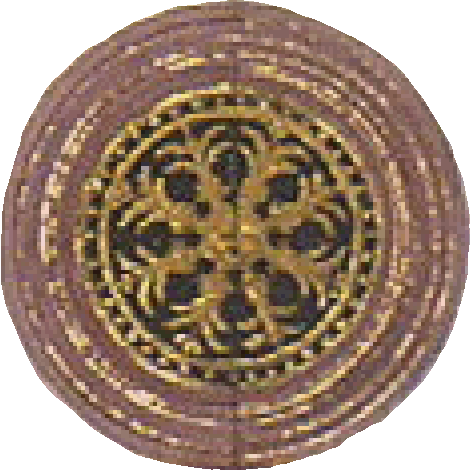
A fairy tale by the Brothers Grimm
|
- Rumpelstiltskin is a German fairy
tale collected by the Brothers Grimm in the 1812 edition of
Children's and Household Tales.
- Scholars estimate that versions of Rumpelstiltskin first appeared nearly 4,000 years ago, predating the author Homer and even the English language itself.
-
Rumpelstiltskin is often interpreted as a symbol of greed, deception, and the dangers of making deals with unknown forces.
- The story is about an imp who spins straw into gold
for a greedy King in exchange for a woman's firstborn child.
|
This is one of our oldest stories, dating back
between 2,500-6,000 years, making its literary
neighbors The Epic of Gilgamesh and Beauty and the
Beast.
(Kathryn Wilson)
|
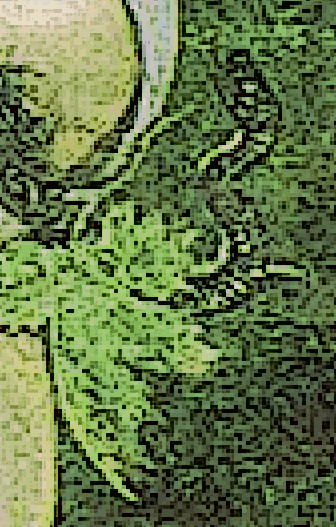
Little rattle |
- In German, the story is called Rumpelstilzchen or
'little rattle stilt.'
- Grimm suggested -stilt, -stiltchen
from Old German stalt with some uncertainty, and did not much elaborate.
- Also known by such names as pophart or poppart, that makes noises by rattling posts and rapping on planks.
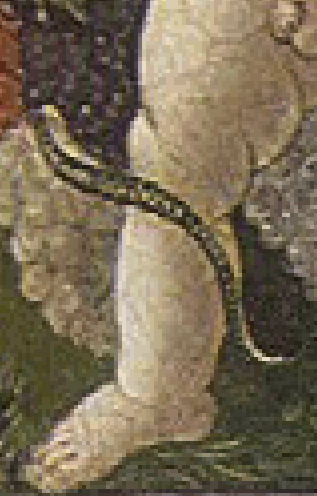
Dwarf limp apparently |
-
Rumpele stilt oder der Poppar was a German game similar to Duck duck goose, translating literally to:
'frighten the dwarf with a limp' the tale itself was one of the things the ‘poppart’ could do if it wasn't dealt with properly (saying it's name and making a loud noise with pot ash in your palm).
- Other related mythology are mummarts or boggarts and
hobs, which are mischievous household spirits that disguise
themselves.
|
Brewer's Dictionary of Phrase & Fable baldly and
succinctly states it meaning as "wrinkled foreskin" or
"prepuce", which correlates with the "crumpled stalk"
if stalk is considered as a euphemism. (Wikipedia)
|
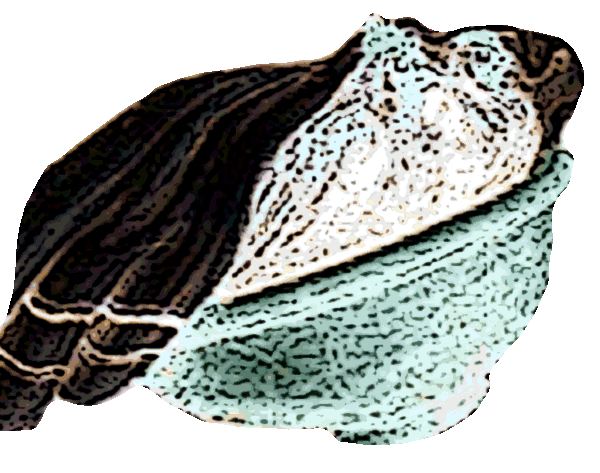
The White Hen |
- The same story pattern appears in numerous cultures
including, England, Scotland, Ireland, Iceland, Germany,
Netherlands,
Czech Republic, Denmark
and Hungary.
- In some British versions the title character is named Tom Tit Tot, or Whuppity Stoorie.
- The Cornish tale of Duffy and the Devil plays out an essentially similar plot featuring a
'devil' named Terry-top.
- There are many variants of the
story throughout the world that are centered around ogres and
manipulators.
- The tale embodies a blend of cultural fears and moral lessons prevalent in various fairy tales and folklore traditions.
|
Tom Tit Tot in the United Kingdom (from English
Fairy Tales, 1890, by Joseph Jacobs); Whuppity Stoorie
in Scotland (from Robert Chambers's Popular Rhymes of
Scotland, 1826); Gilitrutt in Iceland; and The Lazy
Beauty and her Aunts in Ireland (from The Fireside
Stories of Ireland, 1870 by Patrick Kennedy), though
subsequent research has revealed an earlier published
version called The White Hen by Ellen Fitzsimon.
(Wikipedia)
|
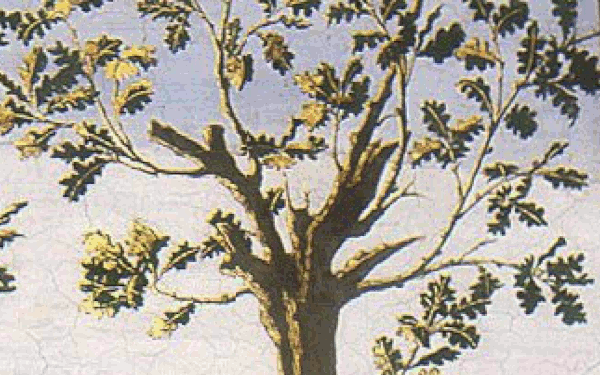
Tree of life |
- What does it mean to borrow from the future and what
strange opportunities can that bring.
- Oftentimes the
story may seem strange and weird, however, the storyline is
quite coherent.
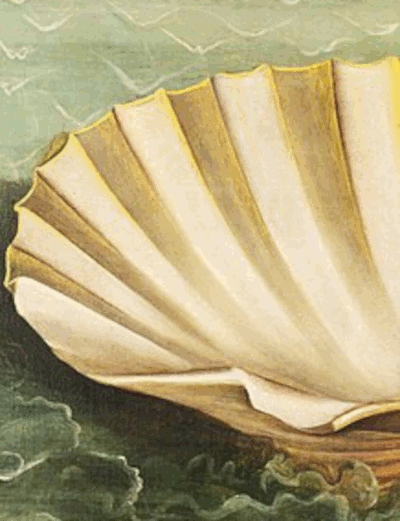
Botticelli - Birth of Venus - clam shell |
- Silk spinner.
- What a web we weave.
- Sea silk, byssus.
- Raw material is the saliva of a large clam, known in Latin as Pinna nobilis.
- Mussels have beards.
- Noble pen shell (nacre - mother of pearl).
- Mediterranean.
- Form the crown of certain mossy shells (Tertullian - 3rd century AD).
Mussel is the common name used for members of several families of bivalve molluscs, from saltwater and freshwater habitats. These groups have in common a shell whose outline is elongated and asymmetrical compared with other edible clams, which are often more or less rounded or oval. (Wikipedia)
|
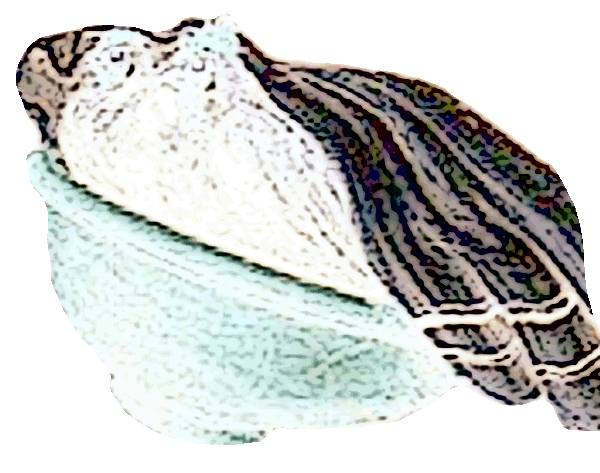
Mussel in soft shell |
-
According to Wikipedia, the word 'mussel[' is frequently used to
describe the bivalves of the marine family Mytilidae, most of which live on exposed shores in the intertidal zone, attached by means of their strong byssal threads ('beard')
to a firm substrate.
- Pliny and Aelian, described the mussel, attributing it with great predatory abilities and a certain intelligence.
The filaments produced by the shell - a sort of
burr - are keratin (the same substance as hair and
nails). They solidify in contact with water and
produce a brownish scale encrusted with shells, algae,
and small corals that, once worked and bleached,
becomes a golden, soft, and resistant thread. (ancient-origins.net)
|
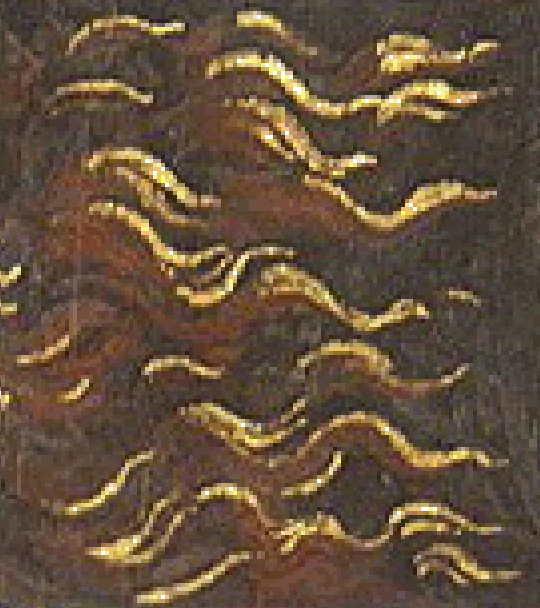
Strong byssal thread |
- In Rome byssus was considered so valuable that it was sold
for gold, as confirmed by the edict of Diocletian.
- It mainly came from Egypt,
Scythopolis near Damascus in Syria, from Tarsus in Cilicia,
and from Apulia and Sardinia in Italy, but not in large
quantities.
- You can eat these too in so many ways; Spicy Coconut Mussels with Lemon Grass, Strawberry Tomato Rosé Mussels
and Musselman's strawberry applesauce.
- The mussel, apparently not very valuable, proves to
be extremely valuable, especially in a pinch.
|
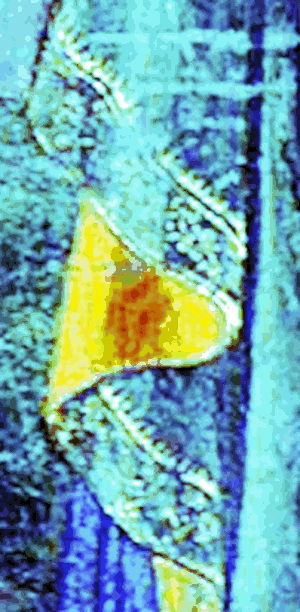
Woven
gold cloth
|
- Extremely light and shines like gold.
-
In Egyptian hieroglyphs it was called “royal linen.”
- Egyptians used to wrap corpses with bandages cut from byssus cloth and coated with rubber.
- Lifting a golden fleece that so far none of the dyers has been able to imitate (Basil the Great
- 4th century AD).
- There are many skeptics
however, who do not believe byssus thread was a
commodity.
“Soon I had put on my byssus clothes… I informed
him that they were made from the smooth, silken
filaments with which the fan mussel, a type of
seashell quite abundant along Mediterranean beaches,
attaches itself to rocks. In olden times, fine
fabrics, stockings, and gloves were made from such
filaments, because they were both very soft and very
warm.” (Jules Verne - 20000 Leagues Under the
Seas 1870)
|
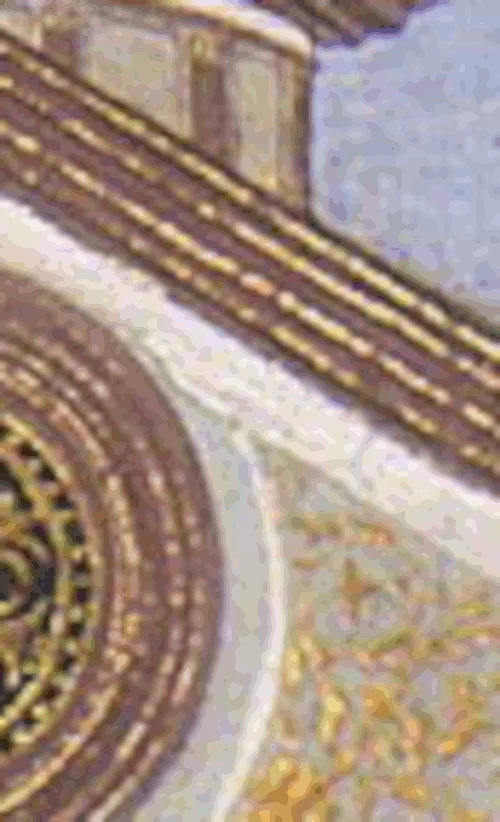
Miller's mill |
- By the side of a wood, in a country a long way off, ran a fine stream of water; and upon the stream there stood a mill.
- The Miller’s house was close by, and the Miller had a very beautiful daughter.
- She was, moreover, very shrewd and clever; and the
Miller was so proud of her.
|
Rumpelstilzchen is regarded as containing
Stilzchen, diminutive of Stelze "stilt".
(Wikipedia)
|
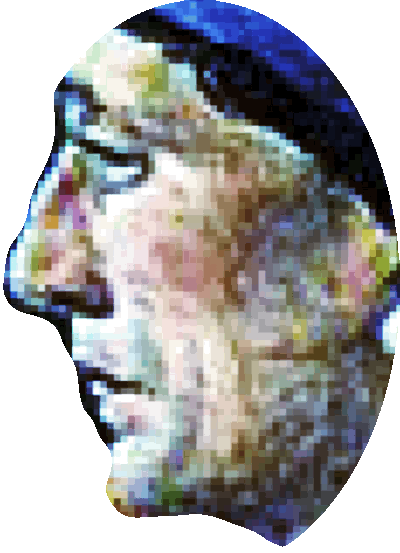
Miller |
, One day the King of the land, traveled to his
neighborhood to hunt in the woods.
- It happened that the
Miller came to speak with the King, and, to give himself consequence, he told him that he had a daughter who could spin gold out of straw.
- The question is, was he merely boasting?
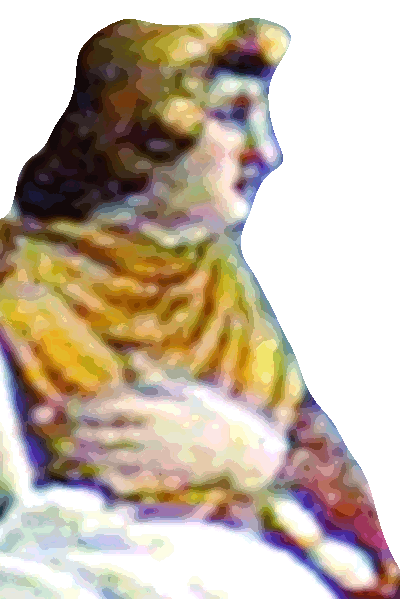
Greedy King |
-
Now this King was very fond of money; and when he heard the
Miller’s boast, his greediness was raised.
- The King said to the Miller: 'That is an art that pleases me
well; if thy daughter is as clever as you say, bring her to my
castle to-morrow, that I may put her to the proof.'
- The
poor girl is caught in a trap through no doing of her own.
|
If she really could produce infinite gold then they obviously wouldn’t be . . . poor?
(snowwhitewrites.com)
|
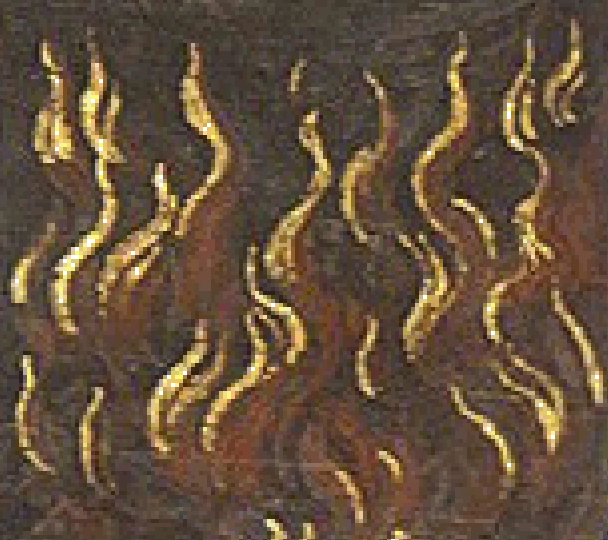
Straw pile |
- When the girl was brought to the King, he led her into a room that was quite full of straw, and gave her a wheel and spindle.
- He said:
'Now set to work, and if by the early morning thou hast not
spun this straw to gold thou shalt die.'
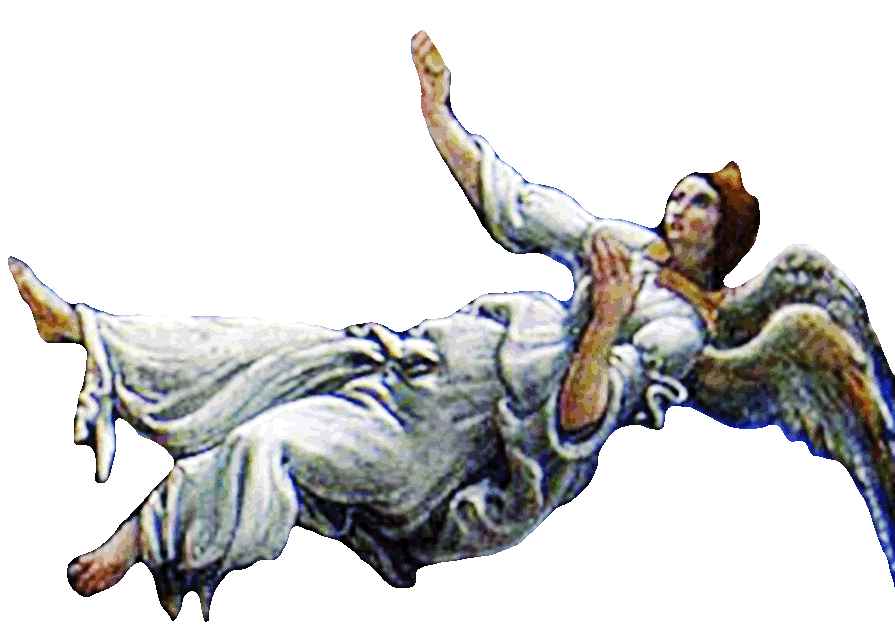
Set up for failure |
- We can see already that the girl in this story has the great misfortune of being the daughter of a very foolish man,
or so it appears?
- The folly of the father in this story sets his daughter up for an impossible scenario.
- So, we have a foolish father and an evil King, the stage is set.
- Our protagonist, the hapless girl, seems incapable of solving this
predicament.
|
Here’s a free pro-tip for life: Don’t lie to the
King. Here’s another: The glory of women is to be
guarded, not flaunted before strange men (See the
story of Vashti and Esther to extend and explore this
principle). (Kathryn Wilson)
|
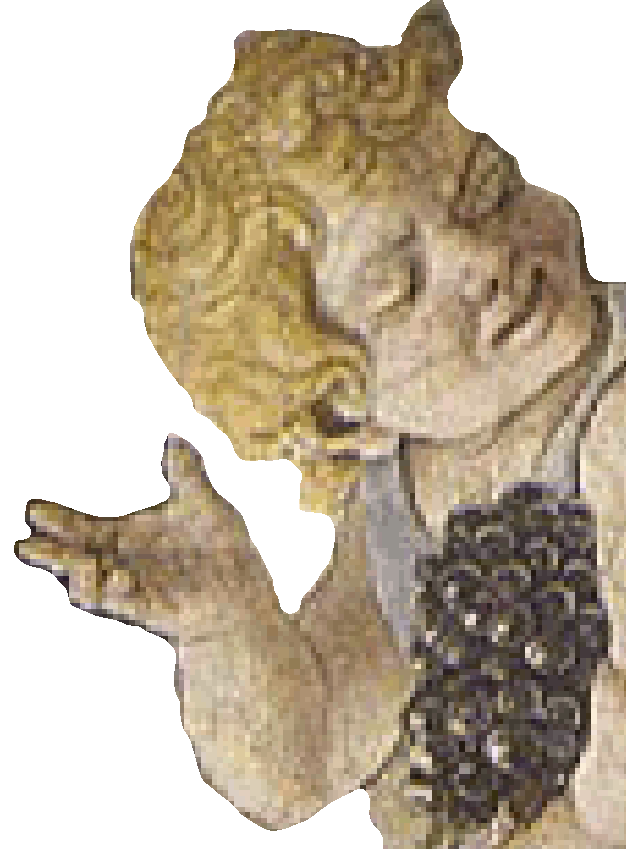
King escorts her to the spinning room |
-
It was in vain that the poor maiden said that it was only a silly boast of her father, for that she could do no such thing as spin straw into gold: the chamber door was locked.
-
The King shut the door himself, and left her there alone.

Distress |
-
She sat down in one corner of the room, and began to bewail her hard fate.
-
The poor Miller's daughter was left there sitting, and
she could not think what to do for her life.
- She had no notion how to set to work to spin gold from straw, and her distress grew so great that she began to weep.
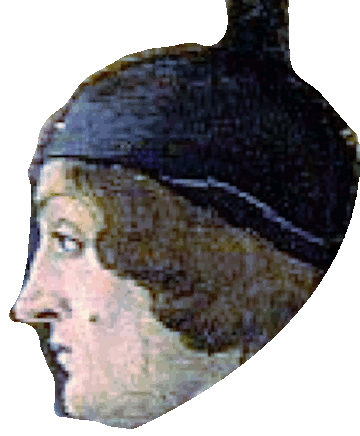
Little imp-like man |
- Then all at once the door opened, and a droll-looking little man hobbled in, who said:
'Good evening, Miller's daughter; why are you crying?'
-
'Oh!' answered the girl, 'I have got to spin gold out of
straw, and I don't understand the business.'
- Then the little man said: 'What will you give me if I
spin it for you?'
- 'My necklace,' said the girl.
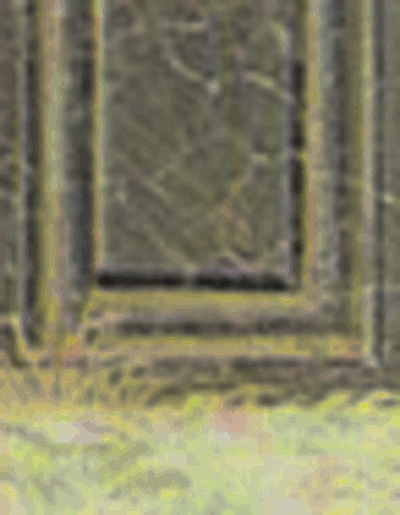
Straw room door games |
- Obviously it means something that the King himself shut the door and that Rumplestiltskin
opened it
- Every detail is significant so the fact that the King has shut the door on the girl is
important because it shows the unassailable nature of the girl’s predicament.
- He is the highest authority and there is no recourse.
|
In the King’s Kingdom what he shuts is shut, what
he loosens is loosed and what he decrees is law.
(Kathryn Wilson)
|

Alchemical skill |
- But Rumplestiltskin opened the door and showed us that
he is definitely not a part of the
King’s kingdom.
-
He had alchemical skills which is a sign that Rumplestiltskin is not bound by the King’s order.
- This is because Rumplestiltskin could change reality
through nature or skill and knew the hidden knowledge of the
occult.
- Which proves that he is neither bound by the
King’s order nor by the order of
nature.
- One thing for sure, he has the power to change the material existence of our world,
but he cannot create life.
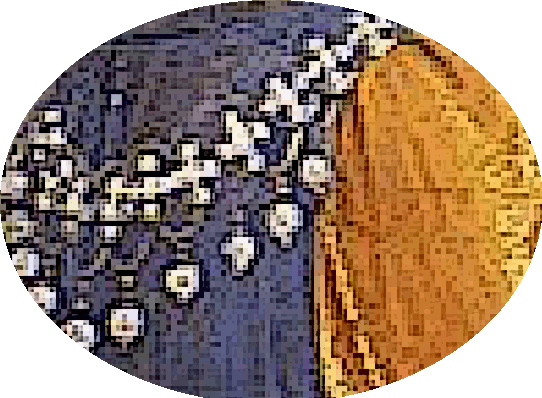
Necklace of glass beads |
- This is the fairytale 'rule of threes,' it has to happen
three times.
- The little man took the necklace, seated himself before the wheel, and whirr, whirr, whirr! three times round and the bobbin was full; then he took up another, and whirr, whirr, whirr! three times round, and that was full; and so he went on till the morning, when all the straw had been spun, and all the bobbins were full of gold.
-
The Miller's daughter was amazed as she had given up all hope,
when he suddenly appeared in the room and spun the straw into gold in return for her necklace of glass beads.
|
'Round about, round about, Lo and behold! Reel away, reel away, Straw into gold!'
And round about the wheel went merrily; the work was quickly done, and the straw was all spun into gold.
|
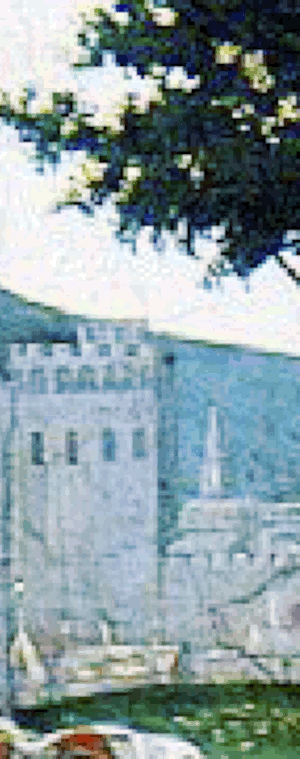
Tower |
- At sunrise when the King came and saw this, he was greatly astonished and pleased; but his heart grew still more greedy of gain, and he shut up the poor
Miller’s daughter again with a fresh task
- He had the
Miller's daughter taken into another room filled with straw, much bigger than the last, and told her that as she valued her life she must spin it all in one night.
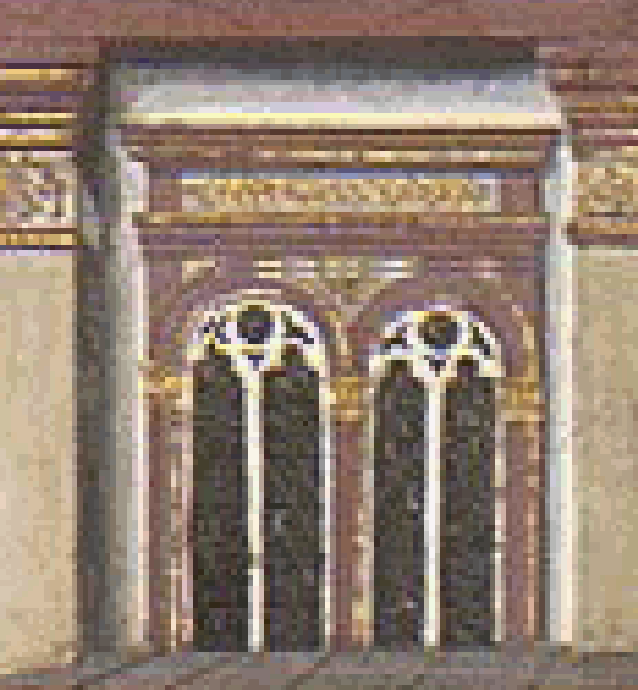
Door |
- The girl did not know what to do, so she began to cry, and then the door opened, and the little man appeared and said:
'What will you give me if I spin all this straw into gold?'
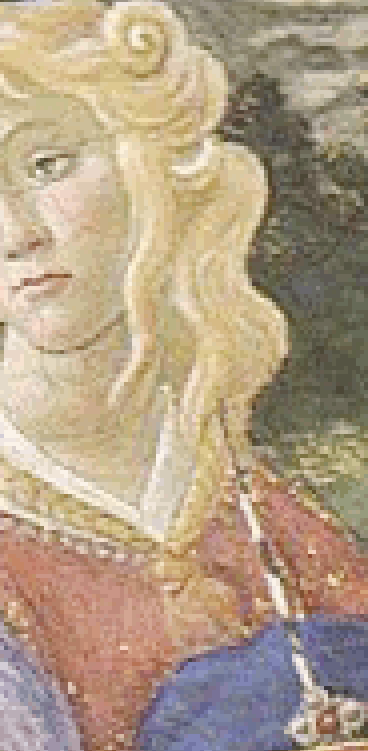
Daughter's jewelry |
- 'The ring from my finger,' answered the girl. So the little man took the ring, and began again to send the wheel whirring round.
- By the next morning all the straw was spun into glistening gold.
|
So her little friend took the ring, and began to work at the wheel again, and whistled and sang:
'Round about, round about, Lo and behold! Reel away, reel away, Straw into gold!'
till, long before morning, all was done again.
|
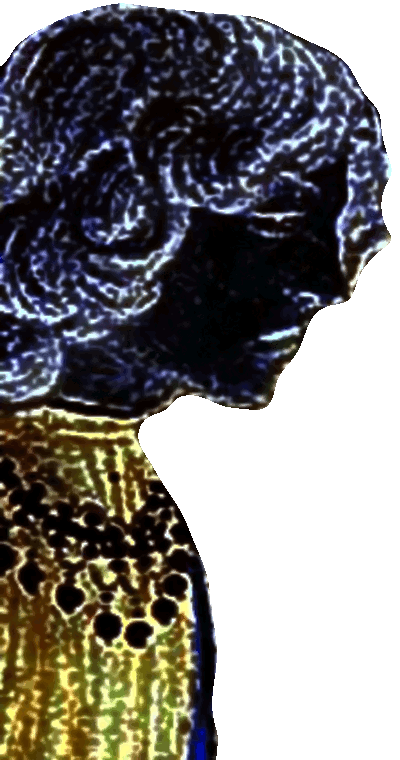
Dark promise to marry the girl |
- The King was greatly delighted to see all this
glittering treasure, but as he could never have enough of
gold
- He had the Miller's daughter taken into a still larger
room full of straw, and said: 'This, too, must be spun in one
night, and if you accomplish it you shall be my wife.'
|
After threatening her with death twice, the King changes his tune to say he’ll marry her if she succeeds a third time—but if you don’t I’ll still kill you. A tip, honey: death might be a better fate than a life with this cad.
(snowwhitewrites.com)
|
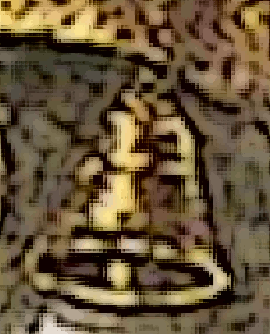
Wedding bell |
- For he thought: 'Although she is but a Miller's
daughter, I am not likely to find any one richer in the whole
world.'
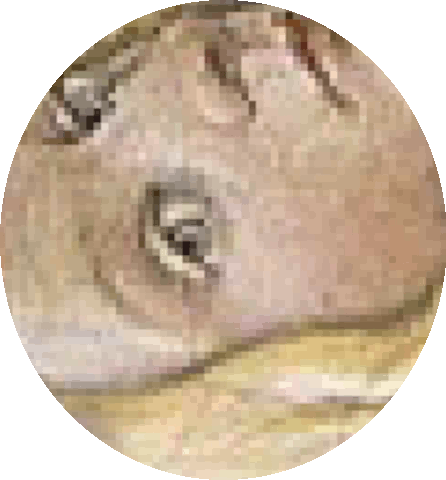
Dreams of first child |
- As soon as the girl was left alone, the little man appeared for the third time and said:
'What will you give me if I spin the straw for you this time?'
-
'I have nothing left to give,' answered the girl.
- 'Then you must promise me the first child you have after you are
Queen,' said the little man.
-
The imp shares many of the same traits with the 'hob,' a small secretive
'man' who works miracles in the night to a set contract which, if not upheld, will turn the creature from helper to curse.
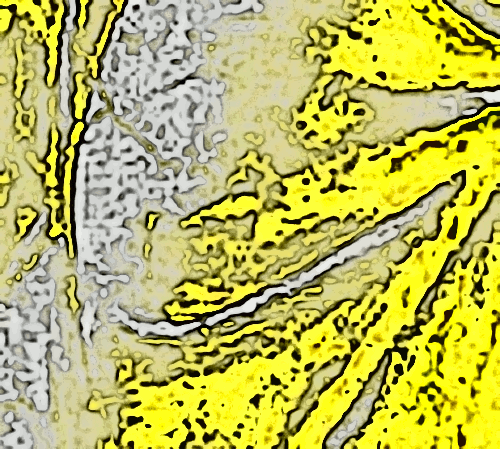
Gold spun |
- 'But who knows whether that will happen?' thought the
girl; but as she did not know what else to do in her
necessity, she promised the little man what he desired, upon
which he began to spin, until all the straw was gold.

Wedding plans |
- The King came in the morning, and, finding all he wanted, was forced to keep his word so he
made wedding plans at once.
|
Round went the wheel again to the old song, and the manikin once more spun the heap into gold. The
King came in the morning, and, finding all he wanted, was forced to keep his word; so he married the
Miller’s daughter, and she really became Queen.
|
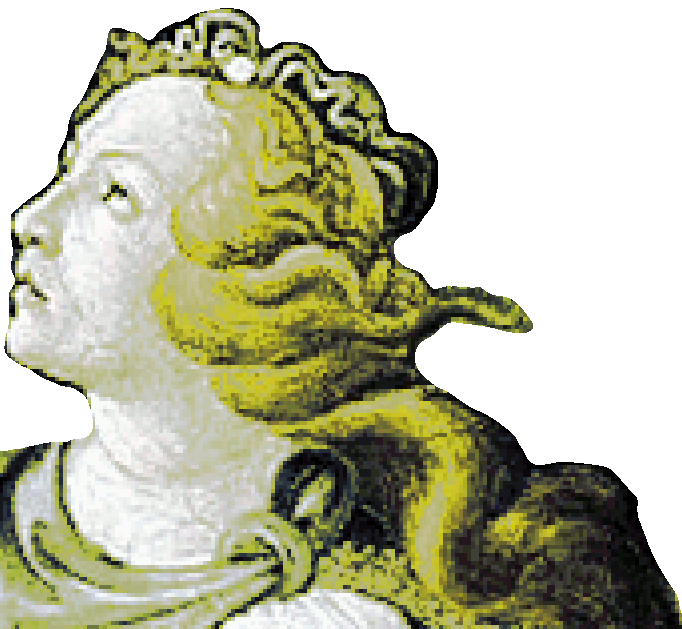
Queenly gold |
- And when in the morning the King came and found all done
according to his wish, he caused the wedding to be held at
once, and the Miller's pretty daughter became a Queen.
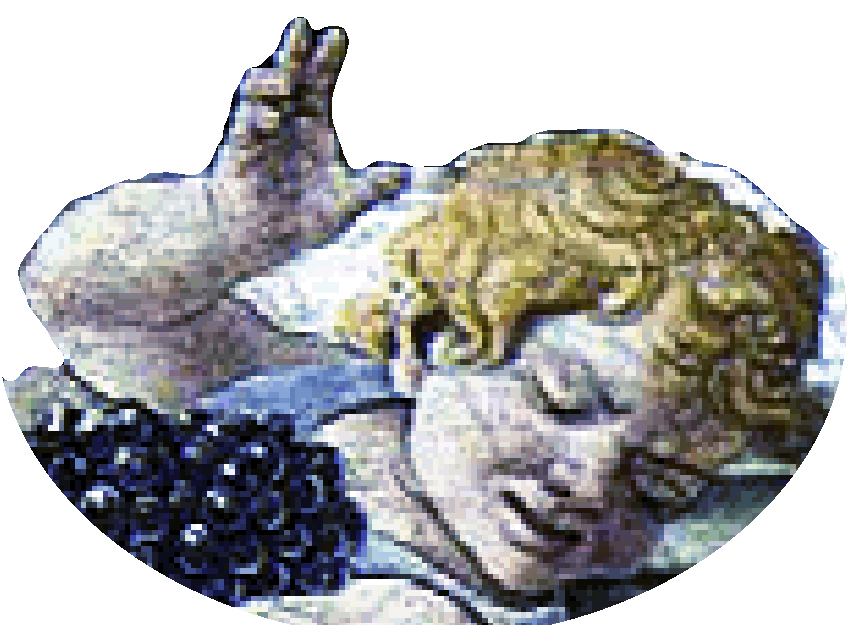
First child |
- In a year's time she brought a fine child into the world, and thought no more of the little man; but one day he came suddenly into her room, and said:
'Now give me what you promised me.'
- Then she grieved sorely at her misfortune.
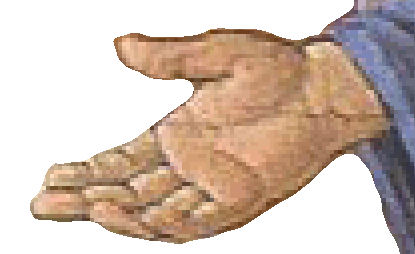
Pay up |
- The Queen was terrified greatly, and offered the little
man all the riches of the kingdom if he would only leave the
child.
- But the little man said:
'No, I would rather have something living than all the
treasures of the world.'
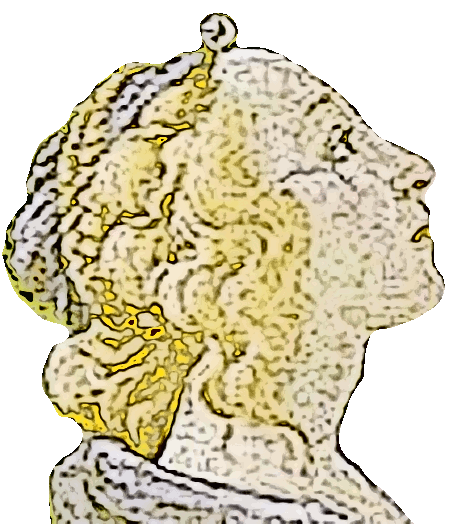
Queen weeps |
- Then the Queen began to lament and to weep, so that the little man had pity upon her.
- 'I will give you three days grace,' said he, 'and if at
the end of that time you cannot tell my name, you must give up
the child to me.'
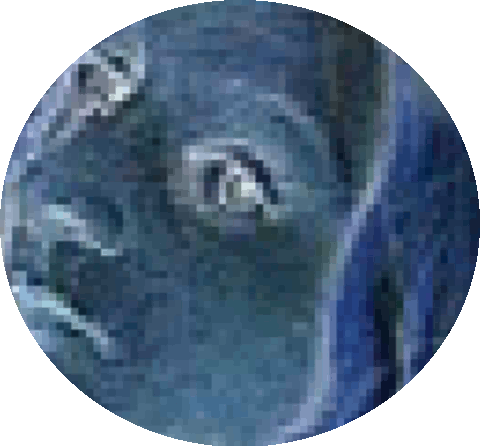
Queen lay awake all night |
- Then the Queen spent the whole night in thinking over
all the names that she had ever heard, and sent a messenger
through the land to ask far and wide for all the names that
could be found.
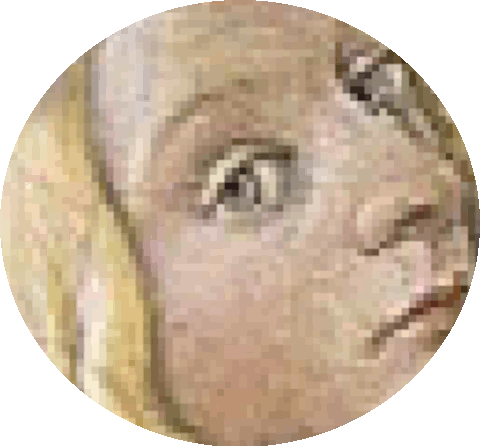
Queen thinking up names |
- The next day the little man came, and she began with Timothy, Ichabod, Benjamin, Jeremiah, and all the names she could remember
that her messenger had given to her.
- But to all and each of them he said, ‘Madam, that is not my name.’
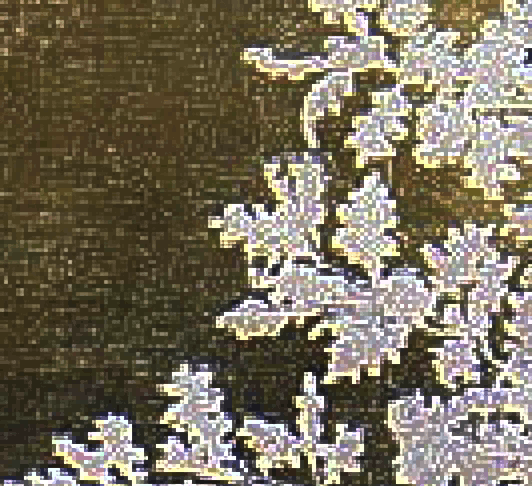
Frankincense |
-
She continued on with Caspar, Melchior, Balthazar, she
repeated all she knew, and went through the whole list, but
after each the little man said: 'That is not my name.'
- These names were not in the original tale but added for
the German audience.
|
According to 6th Century Alexandrian Christian tradition, these are the names of the Magi who visit Christ in his infancy and offer him Frankincense, Gold, and Myrrh. These are ancient men of power and magic from the Zoroastrian priestly caste: the sorcerers of the East. They represent those who might have power in the heavens. But this miracle-worker is not a mage.
(Kathryn Wilson)
|
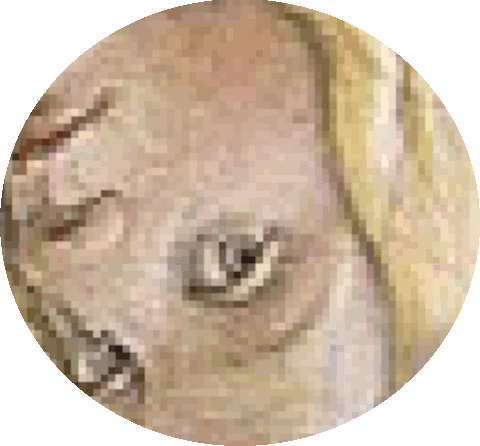
Queen thinking up more names |
- The second day the Queen sent to inquire of all the neighbors what the servants
there (common names) were called, and told the little man all the most unusual and singular names, saying:
'Perhaps you are called Roast-ribs, or Sheepshanks, or
Spindleshanks?'
- But he answered nothing but: 'That is not my name.'
-
Next she tried all the comical names she could think of, Bandy-legs, Hunchback, Crook-Shanks, and so on; but the little gentleman still said to every one of them, ‘Madam, that is not my name.’
|
Next the Queen riffles through the names of her servants and the common-man. Having searched the heavens, she turns her eye to the edges of the earth, the base and the banal.
(thesymbolicworld.com)
|
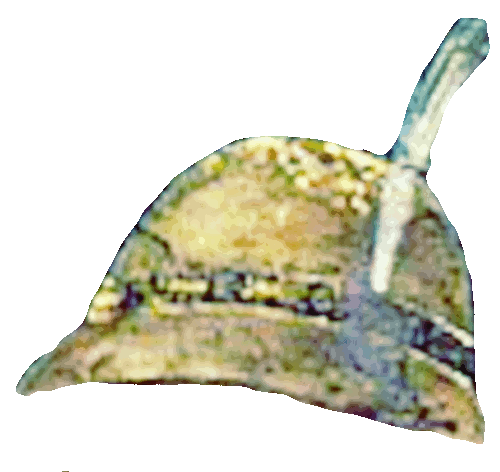
Dwarf hat |
- All the names the Queen chose were about his nature and
physical appearance.
- He is represented as a dwarf with the characteristic abnormalities that are present with the genetic profile.
- These traits also set him aside as both being on the edges of normal society and perhaps at the very bottom of society.
- By choosing names from both the top and bottom of social
hierarchy, the Queen indicates that she has searched through the entire
realm of identities and this odd fellow is not to be found.
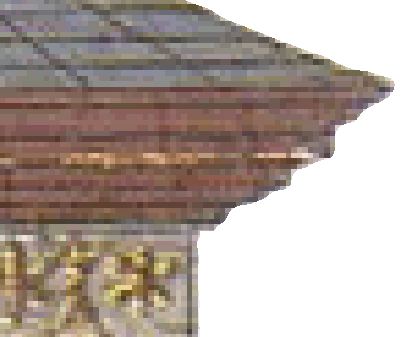
Mountain cottage |
- The third day the messenger came back again after
searching the furthest kingdoms in the world, and said:
'I have not been able to find one single new name; but as I
passed through the woods I came to a high hill, and near it
was a little mountain cottage where I saw a little dwarf man
dancing in front of a fire on one leg and singing.
- This
allowed the Queen to track the imp down.
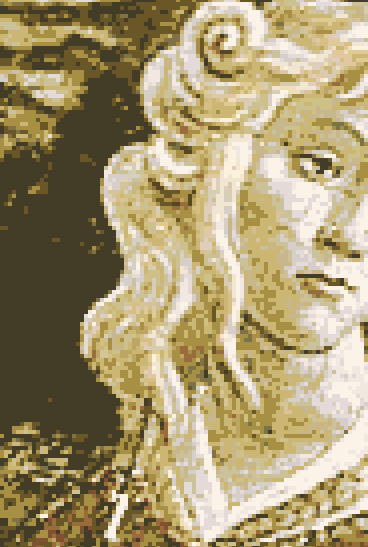
Queen spying in the woods |
- Desperate, before the final night,
the Queen wandered into the woods searching for
the little man hoping she could spy on him and discover some clue
about his name.
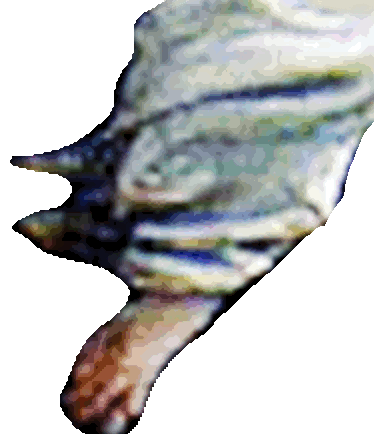
Dancing imp hopping on one foot
611 or 911 |
- She came upon his remote mountain cottage and watched,
sight unseen, as the little man hopped on one foot about his fire singing merrily.
- Soon, he revealed his name in his song's lyrics: 'tonight
tonight, my plans I make, tomorrow tomorrow, the baby I take,
the Queen will never win the game, for Rumpelstiltskin is my
name.'
- In the German version of the tale, Rumpelstiltskin said:
'Ach wie gut, dass niemand weiß, das ich Rumpelstilzchen
heiß,' which means 'How pleased it is, How pleased am I, that nobody knows, that my name is Rumpelstiltskin.'
|
'Today do I bake, tomorrow I brew, The day after
that the Queen's child comes in; And oh! I am glad
that nobody knew That the name I am called is
Rumpelstiltskin!'
|
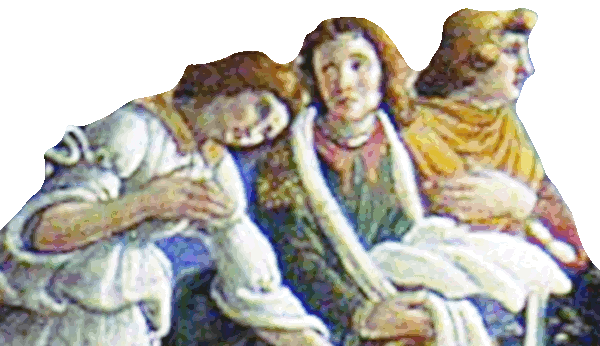
The court waits in anticipation for the outcome |
- When the Queen heard this she jumped for joy and she
prepared for his next visit.
- She felt confident she knew
his name this time.
- As soon as her little friend arrived, she sat down upon her throne, and called all her court round to enjoy the fun.
- The nurse stood by her side with the baby in her arms, as if
the babe was quite ready to be turned over to the imp.
|
''Merrily the feast I'll make. Today I'll brew, tomorrow bake; Merrily I'll dance and sing, For next day will a stranger bring. Little does my lady dream Rumpelstiltskin is my name!''
(etc.usf.edu)
|
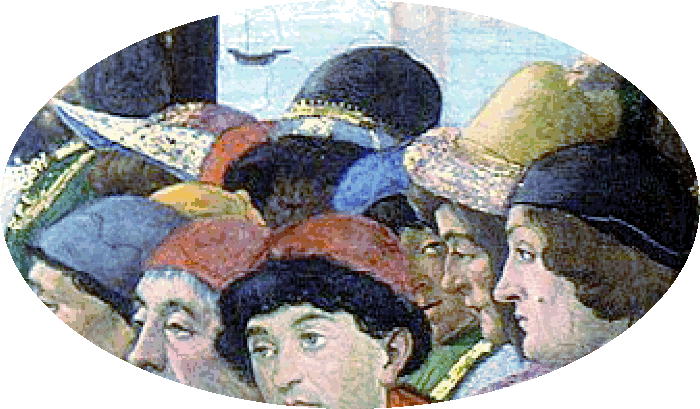
The little man in back of the Queen's court |
- Then the little man began to chuckle at the thought of having the poor child, to take home with him to his hut in the woods; and he cried out,
'Now, lady, what is my name?'
|
So of course the Queen comes in and she's got her
tool.
(Jonathan Pageau)
|
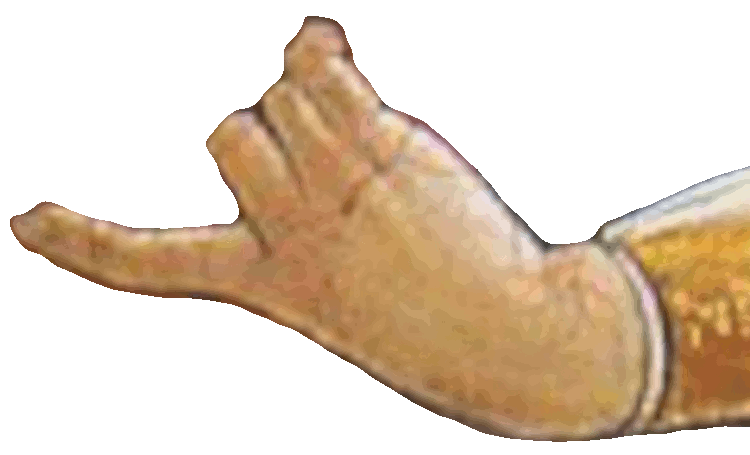
Here to collect payment |
- You cannot think how pleased the Queen was to hear that
and she said at first 'Are you called Jack?'
- 'No,' answered he.
- 'Are you called Harry?' she asked again.
- 'No,' answered he.
|
He demands she deliver his name, and this time she knows the answer. So she draws out her pleasure; “Are you called Jack”? She asks, meaning, “Are you a common man?”. No. “Are you called Harry”? Meaning, “Are you then the Master of this House”?
(thesymbolicworld.com)
|
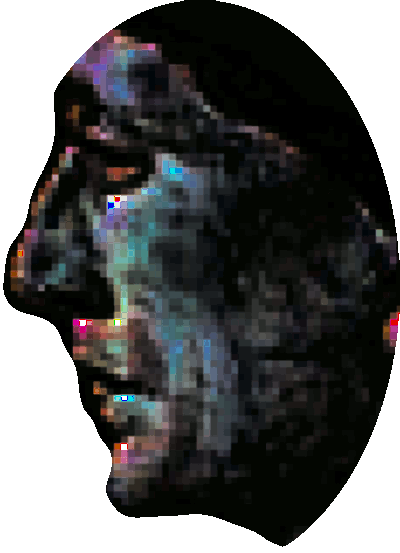
Boogeyman |
- After first feigning ignorance she said: 'Then perhaps
your name is Rumpelstiltskin?'
- Rumplestiltskin is the name of Germany’s boogeyman.
- He was understood as a goblin-like poltergeist, a violent, aggressive, and mischievous spirit which would rattle pots and homes.
- The Queen has finally found the identity of the trickster and reclaimed her rights to her son’s life.

Angry imp |
- The little man was so
angry, he lost his temper because he didn't win the bet he
made with the Queen.
- The Queen revealed his name and he
had a hard time accepting it.
|
Versions vary about whether he accuses the devil or witches of having revealed his name to the
Queen. In the 1812 edition of the Brothers Grimm tales, Rumpelstiltskin then
'ran away angrily, and never came back'.
(Wikipedia)
|
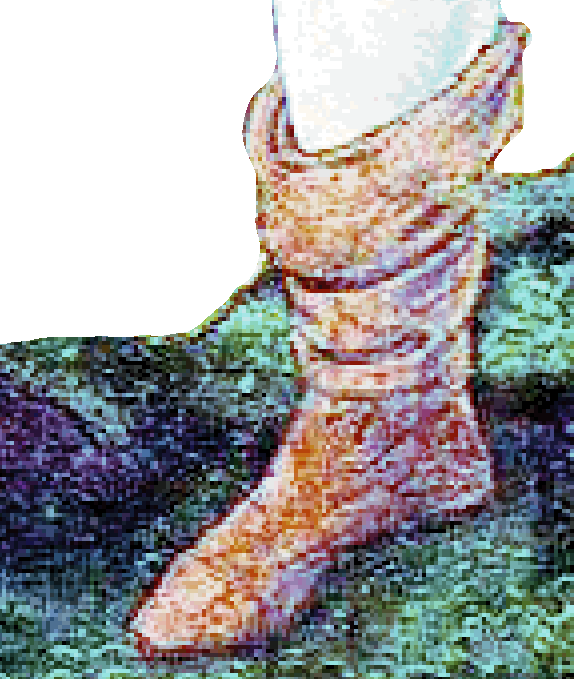
Angry little man stomps his foot |
-
'The Devil told you that! the Devil told you that!' cried the little man, and in his anger he stamped with his right foot so hard that it went into the ground above his knee.
- Then he seized his left foot with both his hands in such a fury that he split in two, and there was an end of him.
- Rumplestiltskin assumes betrayal by his cut-throat brethren
the Devil, which was a reasonable assumption on his part.
|
Certainly the three male characters in the story – the
Miller, the
King, and Rumpelstiltskin himself – are too cocky for their own good, in many ways. The
Miller is so proud of his daughter that he exaggerates her abilities; the
King, being the monarch, thinks he can command anyone to perform his oddest whim; and the little goblin scuppers his own scheme by cockily dancing about yelling his own name within earshot of the
Queen’s servants.
(interestingliterature.com)
|
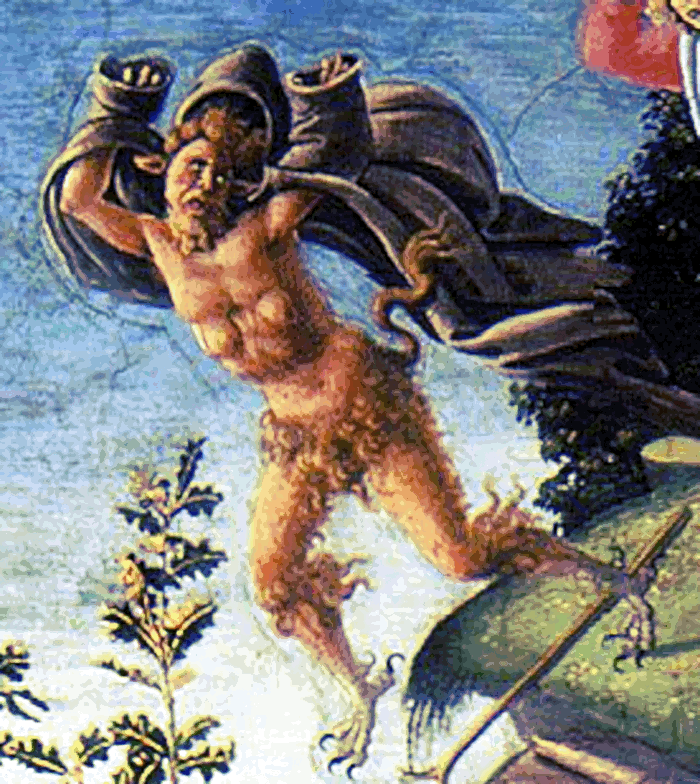
Never to be seen again |
- In another version of the tale, Rumpelstiltskin stomped his right foot
and it sunk so far into the ground that he created a chasm and fell into it, never to be seen again.
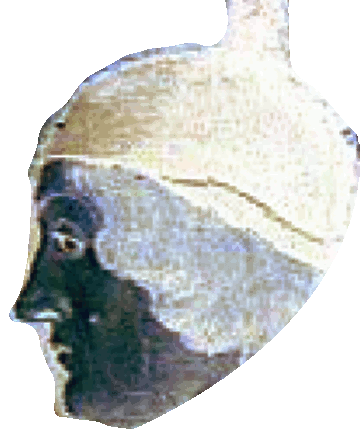
Cooking ladle |
- In the oral version originally collected by the Brothers Grimm, Rumpelstiltskin flew out of the window on a cooking ladle.
- Did you know that ladle is also associated with the word
'handle' so it was about 'flying off the handle.'
|
In the 1857 Grimm's version, Rumpelstiltskin gets so angry, he tears in half down the centre of his body (if that isn't creepy demonic behaviour, I don't know what is.)
(fairie-tale.tripod.com)
|
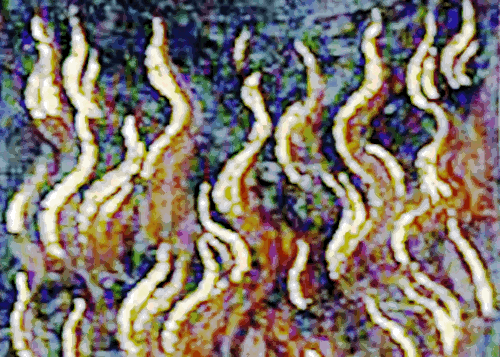
Demon's with new identities |
- The idea of Rumpelstiltskin representing the Devil is a strong case when it comes to his character and actions throughout.
- Much like Milton's Paradise Lost, a demon's nomenclature becomes an important issue because demons do not retain their names that they had in heaven.
- Knowing the true name of a demon would indicate power over that demon.
|
The value and power of using personal names and titles is well established in psychology, management, teaching and trial law. It is often referred to as the "Rumpelstiltskin principle". It derives from a very ancient belief that to give or know the true name of a being is to have power over it. See Adam's naming of the animals in Genesis 2:19-20 for an example.
(Wikipedia)
|
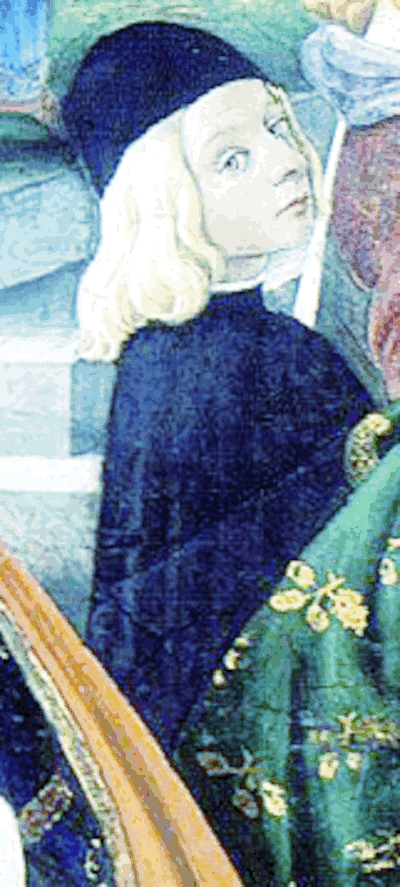
Excellent spinner |
-
The presence of a spinster and a spinning wheel takes on many symbolic roles in folk and fairy tales.
- In Rumpelstiltskin it is clearly a great skill and gift to be an expert spinner
and is something highly valued by family and society.
- The
Miller proved that he considered the skill as something highly
valuable and it's possible his boast about spinning straw
into gold
had more to do with 'turning a sow's ear into a silk purse.'
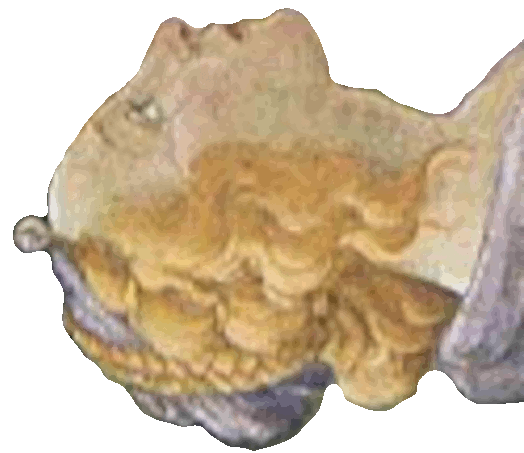
Hanging around on the shelf life |
- There is also the undercurrent of the father needing to
get his spinster daughter married off (sell her into slavery
for power or material gain).
- It also means if he doesn't
do something quick, he might get stuck with her.
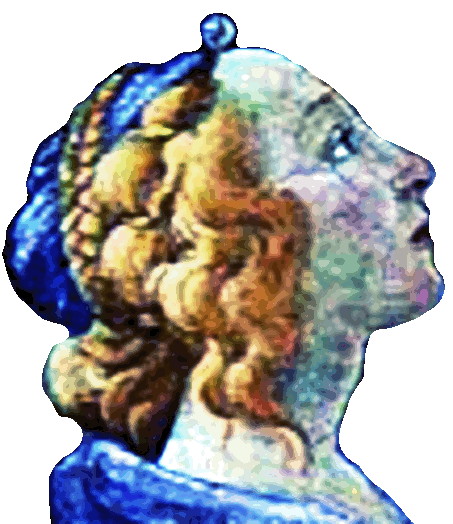
Spinster was a lousy spinner |
- In the historical concept, it is also a strong symbolic truth that the mastery of
the spinning craft was often difficult to achieve by many women.
- As a result, it could be used to gauge her womanly competence, especially
in regards to abilities that were required of a wife.
|
Rumpelstiltskin and other AT-500 types explored the "doubts about one's womanly competence, anger at difficult or dreary tasks, fear of failure or of not winning a mate."
(fairie-tale.tripod.com)
|
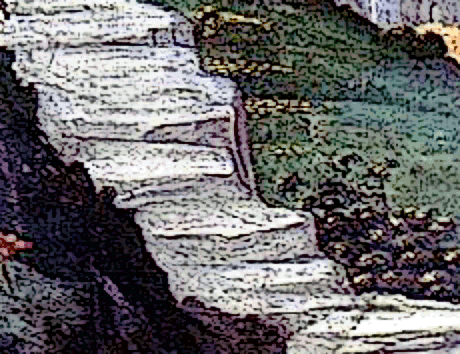
Female ranking system |
- AT
types are Aarne-Thompson categories which are used to classify
fairy tales.
- Rumpelstiltskin is deemed Type 500 or 'The Name
of the Helper' and is considered an 'ordinary fairy tale' which
includes tales of magic, religion, philosophy, romance and
stories of
ogres.
- The four other categories are animal tales, jokes and anecdotes, formula tales and unclassified tales.
|
Indeed, naming the helper is the climax of this story, but it neglects issues that are equally important in the tale. For example, Rumpelstiltskin could also be named "Where the helper requests unfair collateral" or "A girl in impossible situations who is aided by a helper."
(fairie-tale.tripod.com)
|
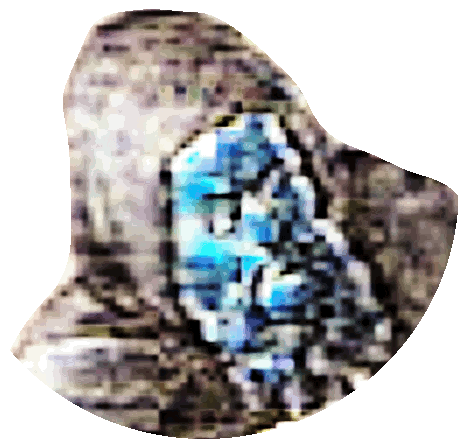
Poltergeist-type goblin
|
- In German, the story is called Rumpelstilzchen, a poltergeist-type goblin, who rattles objects around the house and causes mischief.
- Just the sound of his name seems so descriptive of this demonic little character.
- In almost every description we read about him, he is wretched, pathetic and usually ugly,
although always mannerly and polite.
- Indeed, the picture painted of Rumpelstiltskin, with his
shrewd and cunning skills, is one of a true antagonist.
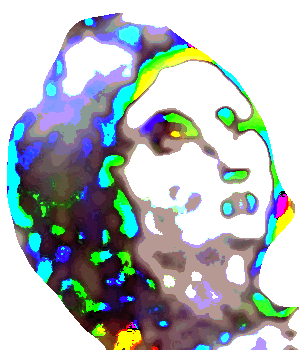
Winning by the rules of his game |
- The irony of this is that Rumpelstiltkin is probably the
only character in the tale that actually gives the Miller's
daughter a chance, by allowing her to guess his name.
- If
not for him, she would have failed and would be dead by now.
-
Rumpelstiltkin's character is always devilish,
his tactic is always bargaining.
- The more you have, the
less he gets; but the less you have, the more he gets.
-
However, because he is the Devil, he must abide by his own rules of the game.
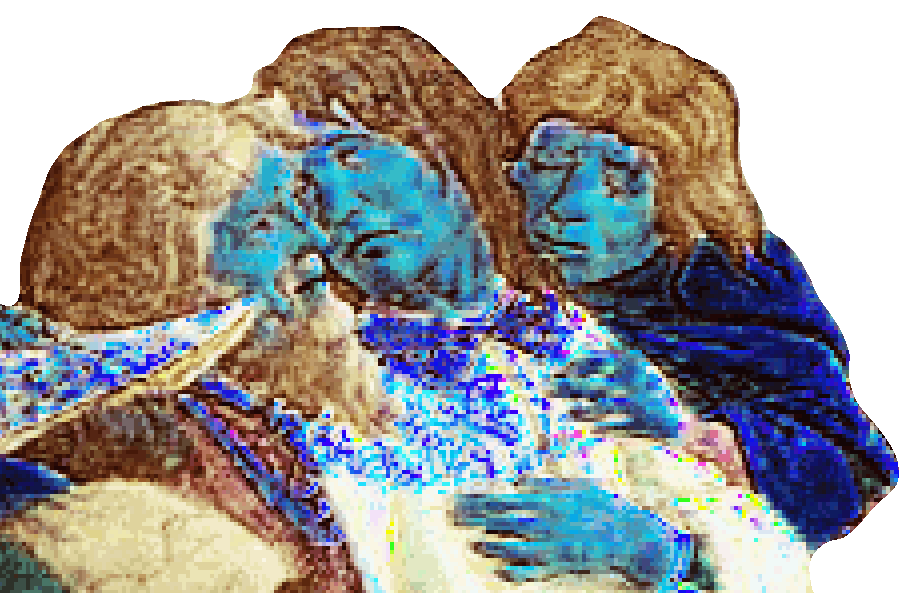
Bad actions and motivations lead to betrayal |
-
Many question why Rumpelstiltskin is seen as the villain in
the fairy tale when he is the one who was betrayed.
- This
is because of his manipulative nature and his willingness to exploit the
Miller's daughter, who
was in a desperate situation, for
his own personal gain.
- He also had very unrealistic demands that
were cruel and selfish and he used his magical power to
control her by offering his magical services in exchange for her firstborn.
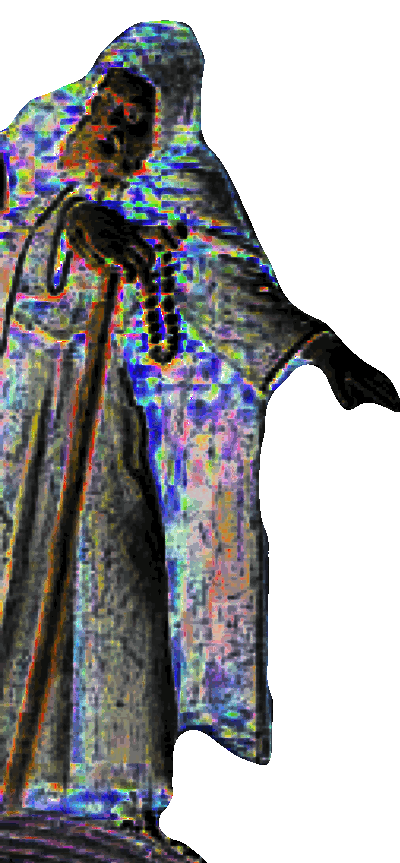
Power imbalance |
- This clearly shows that his initial agreement was predicated on a power imbalance,
along with his use of intimidation tactics.
- His anger reveals what a demon he is
when he's outwitted, he couldn't control himself and wanted
revenge and he also feels he lost what was rightfully his.
- He begins by offering help, but in the end he takes the most valuable things for himself.
- There also seems to be the indication that he cannot simply take those things he wants,
because it seems life must be given, it cannot be taken.

Playing by the rules of his own game |
- However, one thing that's always omitted is what a villain the
King was in the story.
- He was very greedy and would have quickly
murdered the Miller's daughter if Rumpelstiltskin hadn't been
there to help her, all for gold.

Police shot |
- It also leaves you
wondering what he would have done next, why would the greedy
King be
content with the Queen only spinning gold three times.
-
Because obviously, if he had asked her to spin straw into gold
one more time, he would have to carry through with his idle
threat of murdering her because Rumpelstiltskin wouldn't be
there to help her and she would fail.

Miller life |
- As far as her father, the Miller, being an dolt, that
is only because he was conditioned to sell her into slavery
and he received a handsome dowry.
- Plus, the Miller knew
that his first grandson would be the next King.
- Suddenly
he doesn't seem like such a dolt.
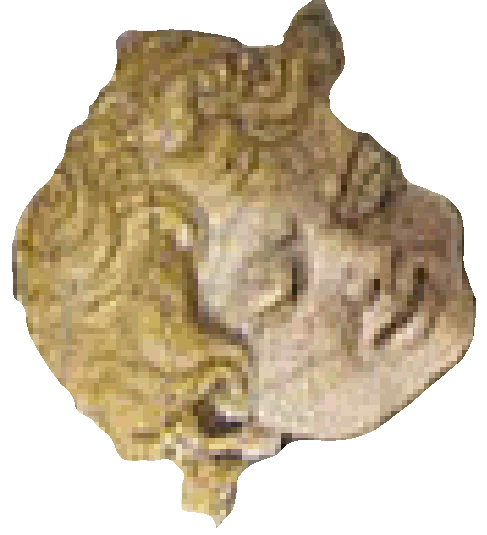
King looking for gold |
- Just
think, the poor girl had to marry the King after he threatened
to murder her three times.
- This does not seem like true
love, and since she's probably not too fond of what her father
did to her, the only one she has in the material world is the baby, and Rumpelstiltskin
was trying to take that away.
- But Rumpelstiltskin was
also looking for gold, despite spinning it from straw, he
ended up with all the girl's jewelry which leaves you
wondering why he needed gold if he could make it from straw?
- The King seems to be morphing into the imp, they have the
same type of greedy traits.
|
Call Trump Rumpelstiltskin, a spiteful little fellow out of a Grimm Brothers classic. With his uncontrolled temper, he used his magic powers to cow and extort—never mind good manners or respect for others.
(the-american-interest.com)
|
|
Borrowing from the Future |
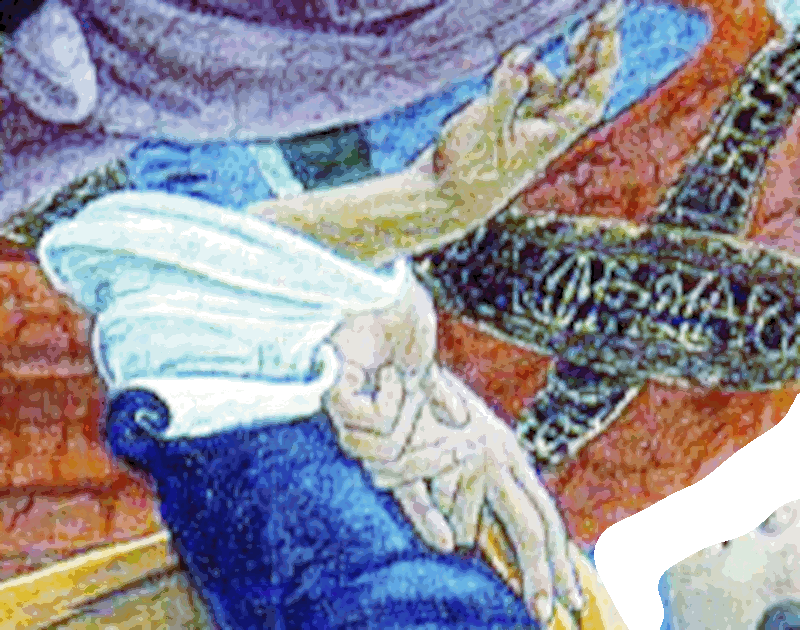
Handshake of sorts |
- It all started with the proposition of something which
is impossible.
- Thinking of it on the terms of credit,
borrowing something (from the future), and then owing someone
for their part in it, the contract you made with them.
-
The Miller's daughter needed to escape with her life and the
little man offered the credit term.
- This is oftentimes
referred to as 'in bed together.'
- Borrowing from the
future in order to have something today.
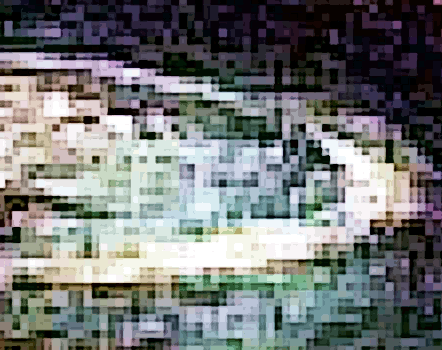
Is it the Man in the Moon or an Astronaut? |
- That's the beginning of the problem, something was
proposed that was impossible.
- You can think of it in
terms of a scientist who thinks up something impossible like,
'let's go to the moon.'
- That possibility doesn't exist
within the world right now so the only way to obtain that
possibility, is to expand your reach, you might say.
- To
reach out into the future, to reach out to the outside, to
reach out further than what you are.
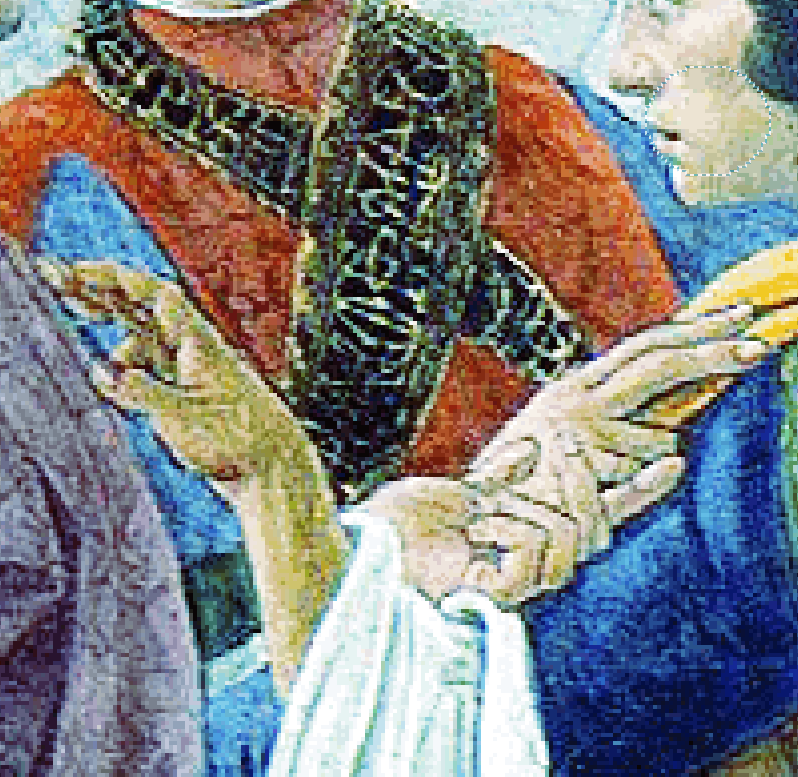
Handsign |
- To be able to gather that to yourself in order to
accomplish the boasting that you've done, this proposition or
wild imagination.
- So on one hand, the image of turning
straw into gold is impossible, but on the other hand, it's the
image of everything.
- The same as the ancient science of
alchemy, changing lead into gold or straw into gold.
- It's
the same principle as why was Christ born in a stable with
all that straw.
- The manger is a container for the sacrificial lamb, stories are reflections of other realties and harkens back to
Judaism.
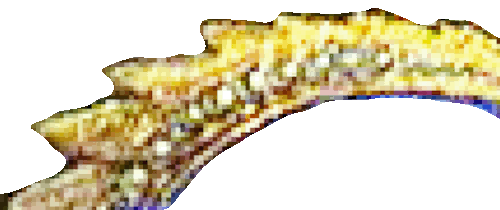
Crown of gold spun |
- Turning the straw from the stable into a crown of gold.
- From humble beginnings, one has to go through the
darkness to find a name, to find a hidden name and bring it to light.
- Then to become joined to a king, a King of all kings, and receive a name above all names.
- During the plagues, not only were the Israelites required to make bricks from straw, they had to eventually harvest their own straw and keep the quota.
- By the end of the plagues, they Egyptians were throwing gold at them as they left,
which is turning straw into gold.
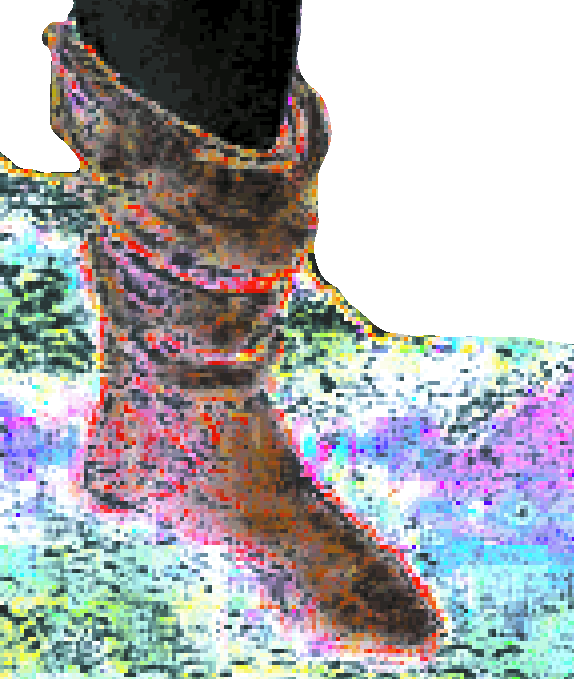
Grass of the field |
- If you also think of a manger as a food trough for
animals and how the straw is not useful for our food, but it
feeds animals.
- The straw is lower than us, but it's what
remains of the grass of the field.
- It's almost like dust,
not something that we can integrate with because it's lower
than us, and you can see this in this notion that animals
further down the chain from us can
digest it.
- So this image of Christ in the manger, whether
if for the idea of sacrificial lamb or for food, is
the same idea of taking what is the lowest, and turning it
into the highest.
- Changing death into glory is the true
purpose of everything.
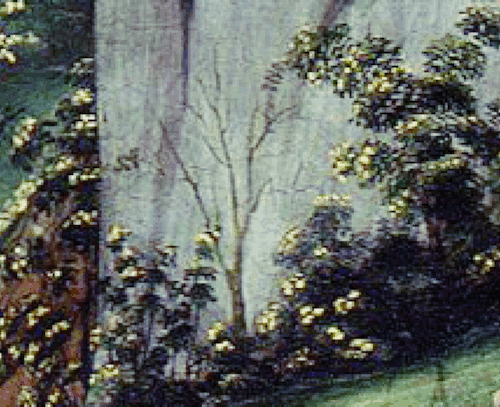
Seed becomes a tree |
- You find the image of this in everything, here's this
fairly useless thing, this straw, a kind of lowest thing, so the
question is can you change that into gold?
- Can you change
the lowest into the highest, or the last into the first?
-
That's the transition spot, the place where something ends and
something begins, there's a mysterious thing that happens,
when the sun sets, the sun rises.
- The solstice where the
sun is the lowest and then flips into the highest, the seed
which falls into the ground and dies, but then becomes a tree.
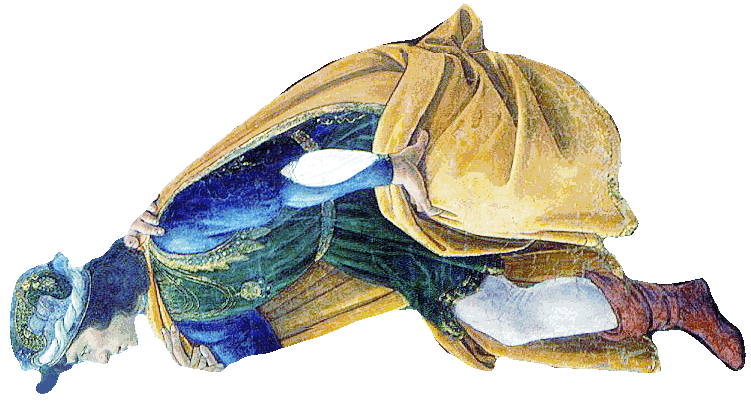
Jonah and the whale |
- All those images, how is it that's the lowest can flip,
can change into that which is the highest, or how can the
ornament become the crown.
- All of these things, this is
one of the biggest mysteries in the world and the story of
Rumpelstiltskin is dealing with this mystery.
- We know
that the transformation happens at night, that's very
important, you can imagine the transformation occurring at the
bottom of the ocean where Jonah is in the whale and he
repents.
- He flips his mind, and then he comes back out of
the whale.
- Remember, it's always darkest before the
light.
|
Now the Lord provided a huge fish to swallow Jonah, and Jonah was in the belly of the fish three days and three nights. From inside the fish Jonah prayed to the Lord his God.
(Jonah 1:17)
|
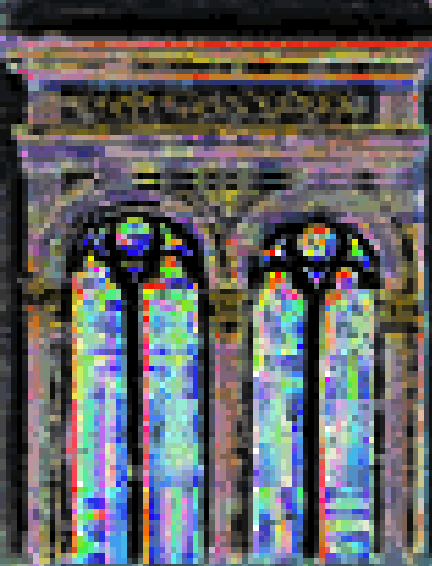
Night work |
- You can imagine as Christ in the tomb, where
mysteriously something flips and he resurrects.
- It had to
happen at night, just like the sun is gone at night, but then
it comes back up again in the morning.
- So it happens at
night at the time we're supposed to rest and we're not
supposed to work, so there is this upside down thing going on.
- The imp is working at night and that is the opposite of what
should be happening.
- The spindle can represent religion a tying together of purposes and patterns and order coming into existence; of work happening when you're not looking when you're not there.
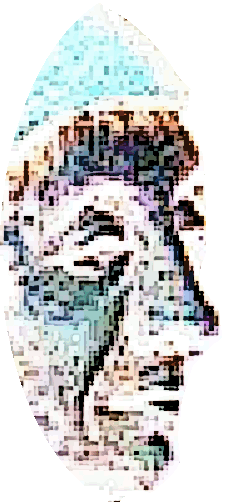
Elf working at night |
- This is a common theme in fairytales where the elves are
working while everyone is resting, there's a secret work
that's going on.
- This is the very image of the wheel, the
threading wheel that changes the straw into gold.
- That is
also the image of change, you could call it an image of change
itself, and it is related also to death and resurrection.
-
You see this image of the spinning wheel and death in stories
like Sleeping Beauty, and you can see it in Rumpelstiltskin as
well.
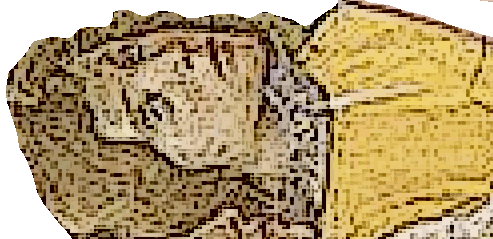
Snow White |
- The life of the princess is in the balance, it's up in
the air, it's uncertain, we don't know if she's going to come
out of the box alive or dead.
- In this moment of
uncertainty, that's when this transformation is going to
happen.
- Then we have the question of borrowing from the
future, and the way it presents itself in this story.
- The
poor Miller's daughter is faced with such an improbability,
the only way she can accomplish it is to take from the future.
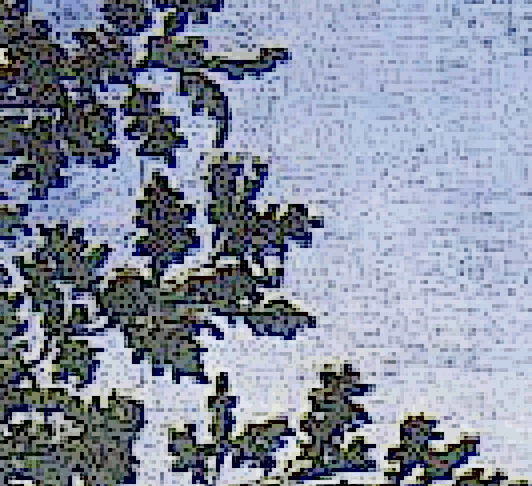
Your seed will prosper |
- But also, at the same time, to take from this monster
she was facing, this agent of the unknown.
- She has to be
able to go in there and get something from that, but it's
dangerous, it has a steep price.
- You can see it in terms
of the problem of borrowing on credit is that you run the risk
that your fruit is going to go to that foreign agent, that
outside thing.
- Like the Proverbs that say you should not
go to the strange woman, to the foreign, because you run the
risk that your seed will prosper someone else on the outside.
|
In medieval times, you were only allowed to borrow from people outside of your own community, or non-Christians. This is taking from the outside, using chaos as a weapon, so to speak. It's the garments of skin from Genesis.
(letruweldonothsa)
|
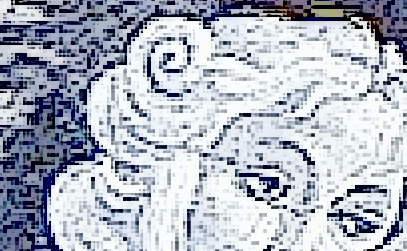
Subservient |
- That is exactly what's going on here, the Miller's
daughter is borrowing from the imp but she's running the risk
of making herself subservient to him.
- She faces the
possibility that her future fruit will go to him, it's no
different than when you borrow from the bank, when you pay
them back with interest, your future labor is going to the
bank (and more than what you borrowed).
- Although it can
be useful sometimes, it's dangerous because you don't realize
that the money you're making in the future, you're actually
making less because you're paying interest.
- So you're
constantly giving your fruit to this outside foreign agent.
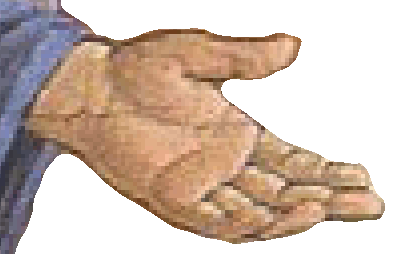
Now she owes him |
- This is the story that Rumpelstiltskin sets up, the
problem of increasing your possibilities for success, how does
this shift, and what's the danger in this transformation of
straw into gold.
- Because it's neither positive or
negative, but you just have to understand the structure.
-
She borrowed from the imp, and now she owes him a son, which
is the image of everything, it's all her future identity,
she's making herself subservient.
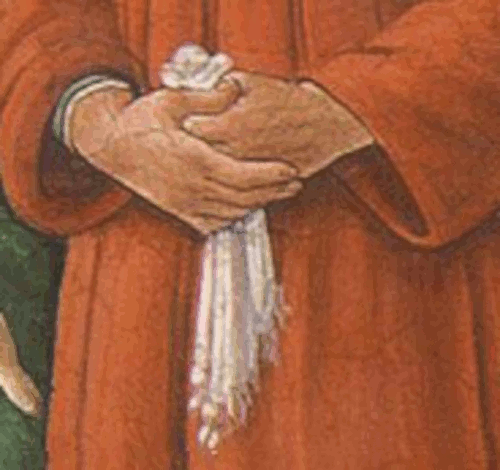
King's future son |
- But it's not just her son, it's the King's future son,
so the King is becoming subservient to this outside dark
force.
- All because she was willing to borrow from the imp
to meet this impossible requirement that the King imposed
on her.
- So that's the first part of the story, now she's
in trouble, but you also have to understand that this changing
of the straw into gold is not just about changing the straw,
but also about her, it's about how this peasant girl has also
been transformed into the Queen.
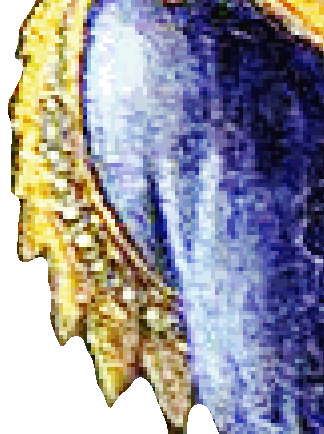
Elephant Queen |
- Using the same path as the straw into gold, she's able
to become the Queen by engaging in this dubious transaction.
- Really, perhaps she should have turned him down and risked
her life.
- A transaction that is giving her value now, but is placing
her in serious trouble later, but for now she has to solve the
predicament she's been placed in.
- That's the whole
flipping thing that's going on and it's a strange situation,
she's becoming Queen by making herself subservient to an imp.
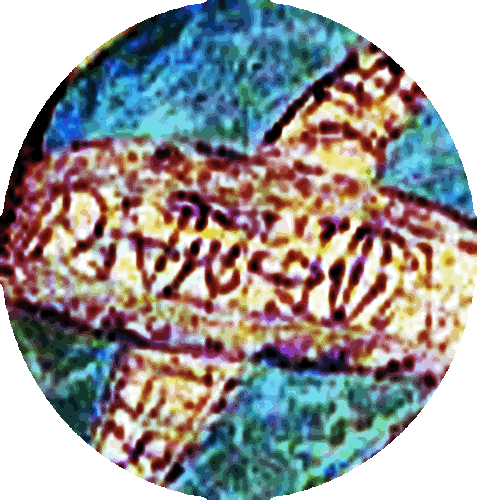
Replacing the King |
- There's nothing unusual about this, it happens all the
time, where someone who wants to be King, or who thinks they
should be, will ally themselves with a foreign power in order
to be able to displace the King.
- This is something which
happens all the time in terms of politics, but it is a
transaction that you could operate on a smaller scale as well.
- In this case, it's the imp chumming up to the Queen to take
over her husband's kingdom with the couples firstborn son.
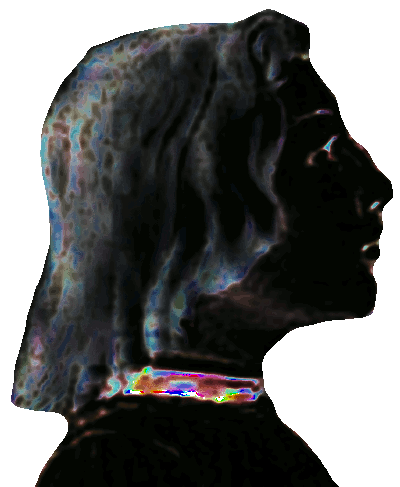
Subservient to that foreign power |
- Understanding it in terms of the person who wants to be King
but can't, allying themselves with a foreign power, replacing
the King, but now he's in trouble, because he's made himself
subservient to that foreign power.
- You see, the imp needs
the Queen to fail now and not recognize his name, and so he's
subservient to her as much as she is to him.
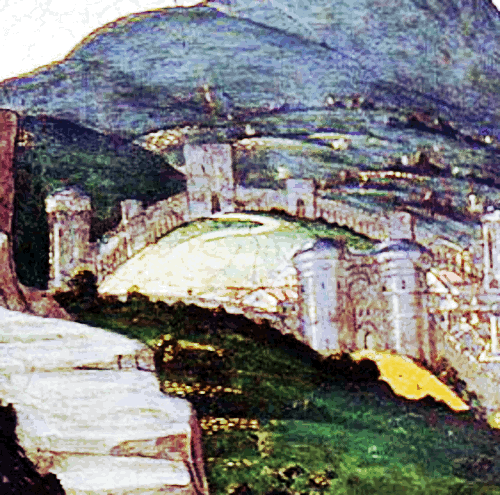
Queen goes further out into the world |
- The Queen solved the problem by learning names, which is
the capacity to master things, by learning the names to have
some capacity to engage and commune with it.
- If you know
the name of something, it's no longer a dark, chaotic
potential.
- Now it has integrated into your world, and
knowing the name of something can mean mastering a skill that
you don't have, something that increases your capacity to go
further out into the world.
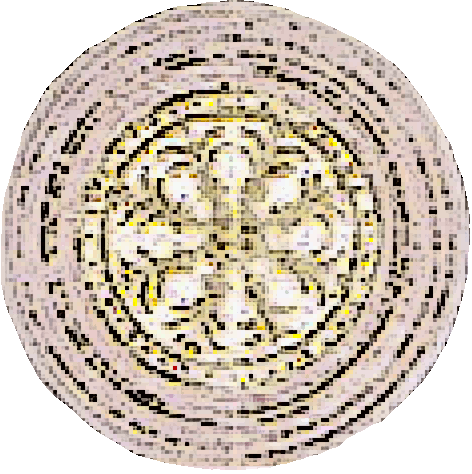
Sphere of knowledge |
- The problem is, you might say that Rumpelstiltskin comes
from the end of the world, and the Queen wants to master him so in
order to do this she has to increase her capacity and learn
all these names.
- To accomplish this, she had to move
outside her sphere of knowledge and she does this by learning
the names of the things outside, so she grows her influence
and her capacity to understand.
- Ultimately, that's an
image of the Resurrection and when we talk about Christ
descending into Hades, going to the bottom to death, but he
does it by becoming the master of death.
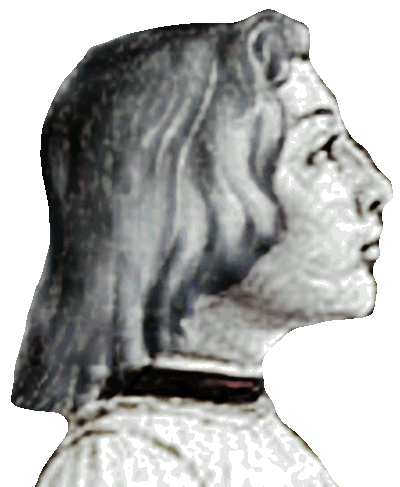
Illuminated the darkness |
- This was by bringing light into darkness, so he
illuminated the darkness all the way to the edge, and by going
all the way to the edge, you have to go all the way to the
end, and that's when the resurrection can occur.
- The sun
has to go all the way down on the bottom of the world (wheel)
and that's when the mystery occurs, when she's trying to find
the imp's name by mastering all the potentiality around her.
- Of course it takes three days for her to reveal all the
names, and the reason for three in magic, is similar to the
reason why Christ was in the tomb for three days.
|
The transformation from straw to gold represents the transformation from what is worthless to what is the most valuable: sinner to son of God, the world to the kingdom of God, the whore to the Bride (church). It is done in darkness because the flesh/the world cannot see the working of God. His ways are not our ways and His ways are past our finding out.
(Rachael Gibson)
|
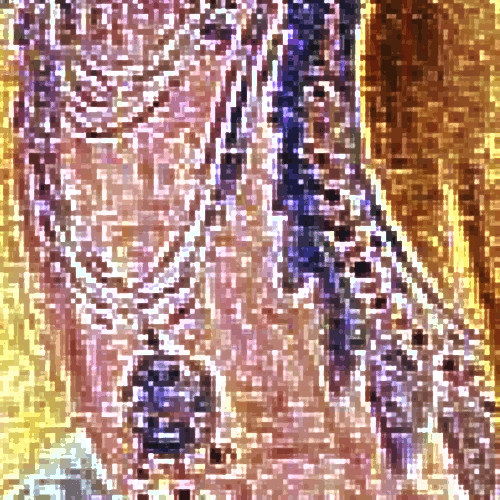
Resurrection of the King |
- She takes three days, reaching farther and farther out,
until finally in the dark forest in an unexpected moment that
the servant who located the imp's cottage came right to the
edge, and that's when he found help for the Queen's problem.
- Once the Queen hears the name Rumpelstiltskin, that brings
about the resurrection of the King.
- The King was dying
because his son, or fruit, was going to be cast to the outside
and by her reaching out to the edge and finding the correct
name, she's able to resurrect the seed of the King.
|
Jesus said: He who seeks, let him not cease
seeking until he finds; and when he finds he will be
troubled, and when he is troubled he will be amazed,
and he will reign over the All.
(Gospel of Thomas)
|

Hat trick |
- It also happens in ways such as, tricking the trickster,
because it's so satisfying to imagine that moment when she's
talking to Rumpelstiltskin and that last day he was so
arrogant while she was naming all the names.
- When she
finally reveals his name, that moment where the trickster is
tricked is so satisfying.
- And it's so satisfying because
it holds the idea that this is how the world begins all over again, like
that's the last trick.
|
The literal meaning of Rumpelstiltskin seems to be something like little rattling post (that supports a structure). So he's just a little annoying noise and when he collapses the entire structure he supports collapses with him. When the Queen knows that he's just a small annoying noise then she knows she doesn't have to fear him and he loses his power and is defeated. Kind of like when the curtain is pulled back on the Wizard of Oz to reveal he's just a little old man, then no one fears him anymore.
(Rachael Gibson)
|
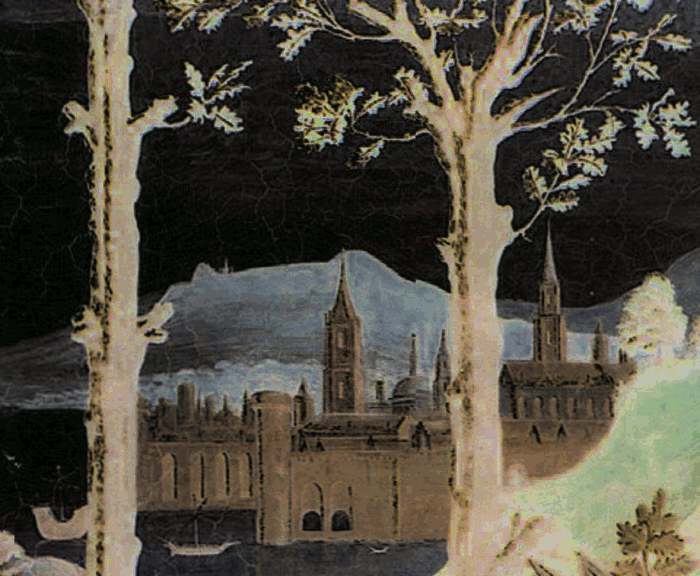
Subservient to a foreign power |
- That's Christ going into Hades and then the trickster
believes he brought Christ into death, but the trickster is
tricked, and he thought he won but by the very fact of
winning, he's lost.
- This structure can be seen in the way
that the story of Rumpelstiltskin concludes.
- This is
master level symbolism because it's not about credit, it's not
about borrowing, but all those things, like a kingdom which
compromises itself by making itself subservient to a foreign
power.
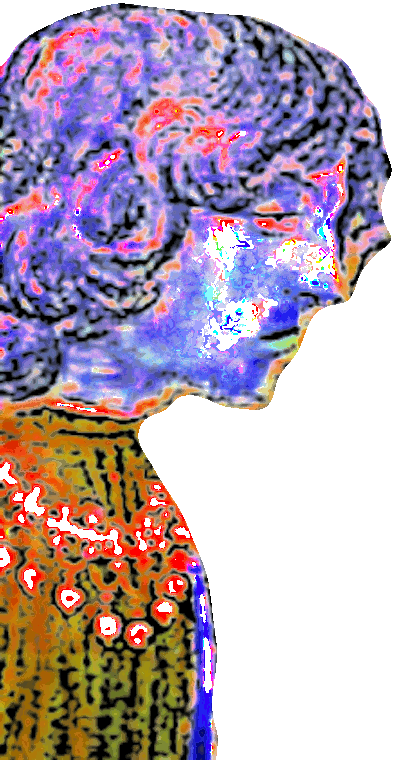
Pattern |
- All these parallel structures have a pattern, and you
must see the pattern because it's beyond all these
particulars.
- It's not that the story is about credit or
about this or that, it's more that it shares the pattern of
these different elements of reality, and oftentimes, the story
is so strange, we can't see that pattern so well.
- But as
we start to see the analogies between the different stories,
we're able to understand how this is manifesting a common
pattern and how that is in fact, a pattern of reality which is
how does the bottom become the top, how does the end become
the beginning.
- How does a little seed planted in dung
become a tree and how did that happen in terms of pattern.
|
Oh, the depth of the riches and wisdom and knowledge of God! How unsearchable are his judgments and how inscrutable his ways!
“For who has known the mind of the Lord,
or who has been his counselor? Or who has given a gift to him that he might be
repaid?” For from him and through him and to him are all things. To him be glory forever. Amen.
(Romans 11:33–36)
|
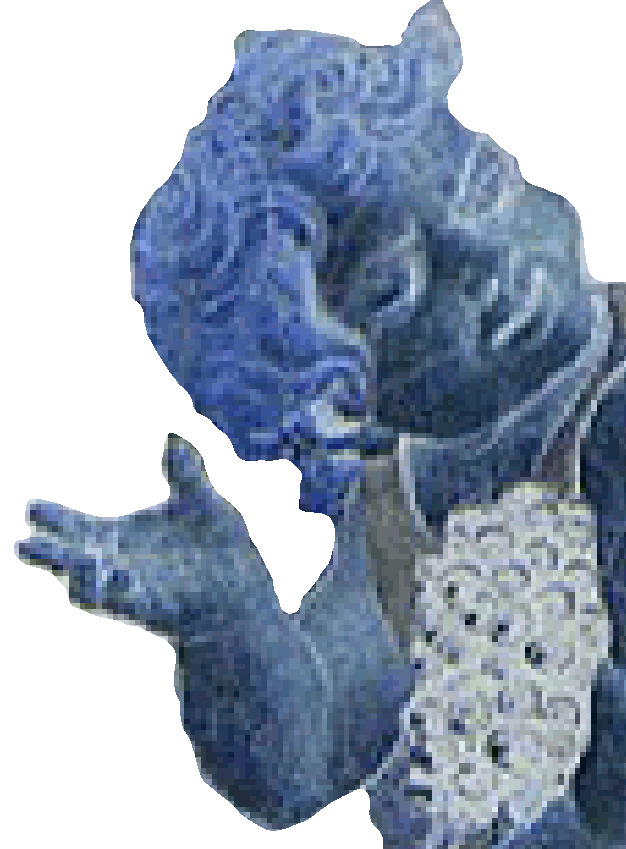
Kermit the Frog |
- The 1994 Muppet Classic Theater adapted the story, starring The Great Gonzo as the title character, Miss Piggy as the
Miller's daughter, and Kermit the Frog as the King.
- In this version of the story, Rumpelstiltskin reveals that his mother sent him to camp every summer until he was 18.
|
The Miller's daughter, who has her father, the
king and the king's loyal royal advisor help her guess
the name of the 'weird, little man,' recalls that "a
good mother always sews her kid's name inside their
clothes before sending them off to camp." Thus, the
girl decides to check his clothing, and finds
Rumpelstiltskin's name inside.
(Wikipedia)
|
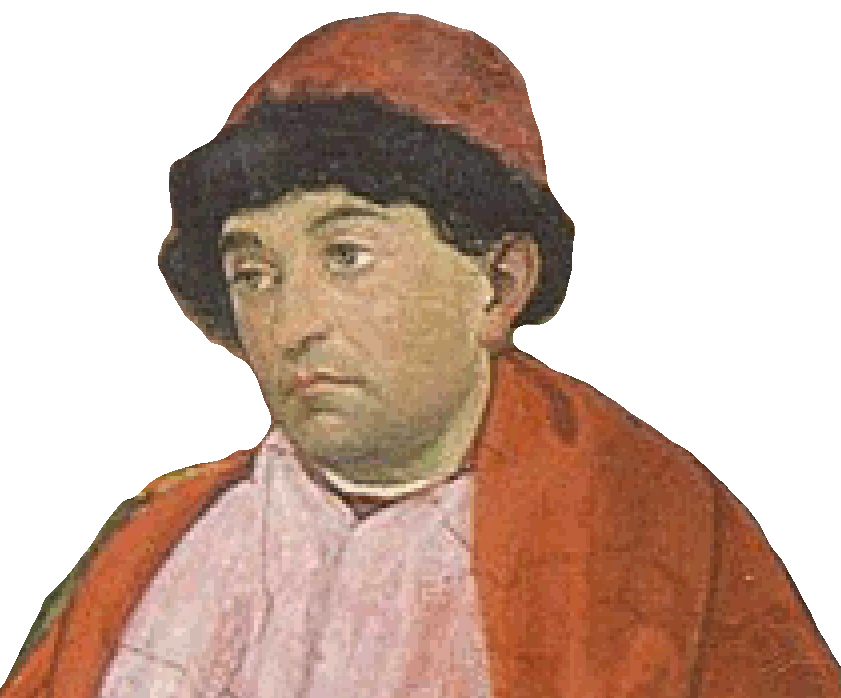
Super Mario |
- The video game Paper Mario: The Thousand-Year Door has a similar format with the character of Doopliss inspired by Rumpelstiltskin.
- In the game, when Mario and Princess Peach get involved in the search for a mystic treasure that holds great fortune.
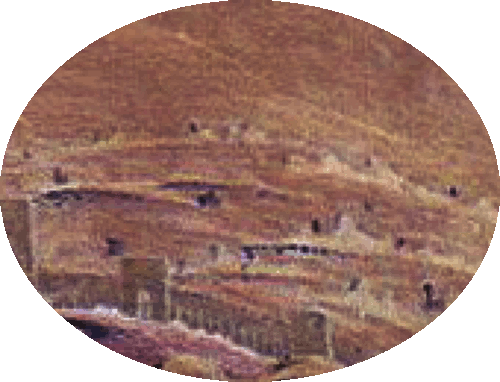
Principalities |
- We all must discover what principalities we have made
bargains with.
- Unfortunately, we have all made many deals with several principalities.
- Principalities such as Sloth in the form of fast food, videogames and
smartphones are all over our lives.
- Vanity, which fuels
our drive to be seen a certain way, has taken our attention, time and resources.
- Technology has stolen our time, cars have taken over our
communities, and the election cycle has taken our temperance.
- It just goes on.
|
Honestly, I should have gotten the warning when Starbucks chose the mermaid as their logo: mermaids are symbols of deception and seduction. I need to start by uncovering the true identities of these principalities so I can start the steady work of wisdom.
(Kathryn Wilson)
|
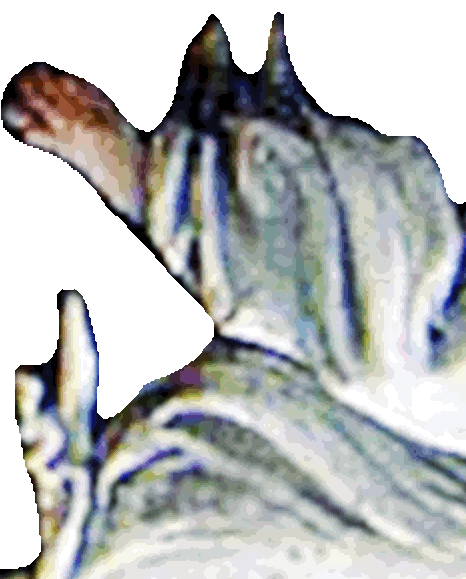
Busy mouth |
- No Rumpelstiltskin was not betrayed, he was outwitted!
-
Rumpelstiltskin, who was vain and filled with hubris, turned out to be his own worst enemy,
he had a big mouth and the Queen had every right to walk in
the woods, so overhearing him can't be considered 'cheating'
on her part.
- He believed mistakenly that only he would know what he was doing, and that his unknown strange name gave him control over the karmic retributions of those selfish acts, as long as it remained unknown.
|
"For my thoughts are not your thoughts, neither are your ways my ways," declares the Lord.
(Isaiah 55:8)
|
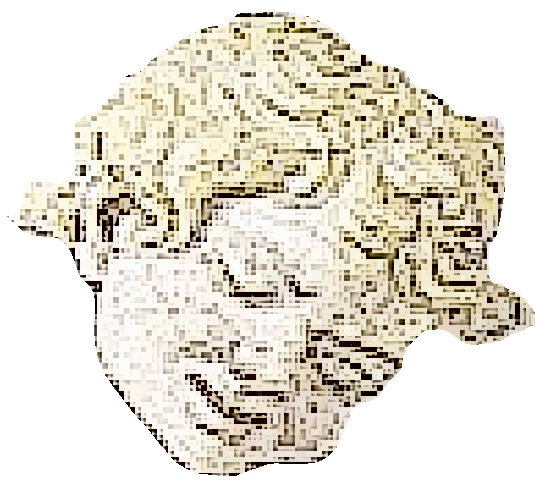
Hubris |
- Her cunning father's boast got her into this situation,
while the boasting of Rumpelstiltskin is what eventually got her out,
and that is an example of the lowest being turned into the highest.
- One boast led to bad, and another boast led to good for the
Queen.
|
The girl transformed into the Queen is us transformed into the Bride. We are worthless sinners yet God requires that we bring forth the most valuable (Christ). That Rumpelstiltskin does the actual changing of straw into gold shows that God uses everything, even Satan, in the perfecting of the Bride. Rumpelstiltskin's right to the child is an image of Satan's claim on us, the right of first redemption, he is our first husband, the nearer kinsman in the Book of Ruth. At the end, in darkness, when our own strength is exhausted, we see the light of Christ in his Resurrection and Satan is defeated.
(Rachael Gibson)
|
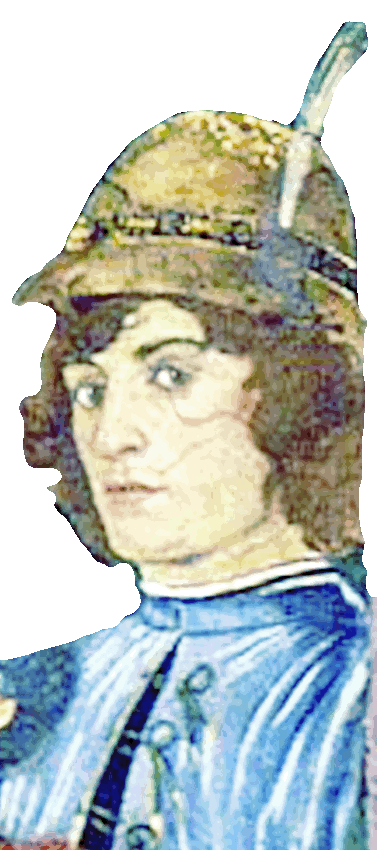
Queen's faithful servant, her savior |
- Let's not forget the Queen's faithful servant
who was the one who discovered Rumpelstiltskin's cottage, and
because of his witness she was able to discover his name and resurrect the King.
- In the Brothers Grimm version the servant is called
'Messenger' and he finds Rumpelstilzchen 'around the edge of a
forest at a high mountain, where the hare and the fox say
goodnight.'
- Typically in the Bible the Messenger is the Holy Spirit
and the Father is God, such as in the story about Job.
- Father God brags on Job and starts the sequence of events.
- Allowing the tempter to take all Job owns, including his children, to prove he will not curse God.
- So the Miller knew what he was doing all along and as he is
now the grandfather of a new and upcoming king.
|
Then the Lord said to Satan, “Have you considered my servant Job? There is no one on earth like him; he is blameless and upright, a man who fears God and shuns evil.”
(Job 1:8)
|
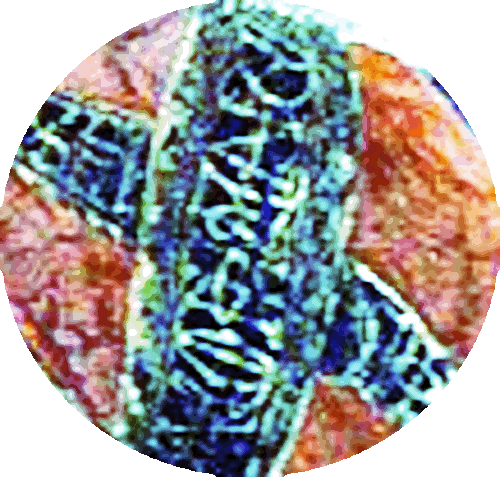
Defeated by his own name |
- As to his former power, once he pronounced his name, and was overheard, the name announced wiped out all his power permanently.
- Demons are real, but they have no power, authority or means to buy your soul or hold you captive
as they have already lost the spiritual war, they are merely committing guerrilla warfare until the end.
- Over the centuries, tales about a magical helper defeated by his own name have been told all over the world.
Moral of the story!
- Rumpelstiltskin's actions serve as a cautionary tale about the dangers of greed and the consequences of
making deals with those who may have ulterior motives.
- The Miller's daughter who despite her initial
vulnerability, takes control of her own fate and wins
in the end.
|
|

